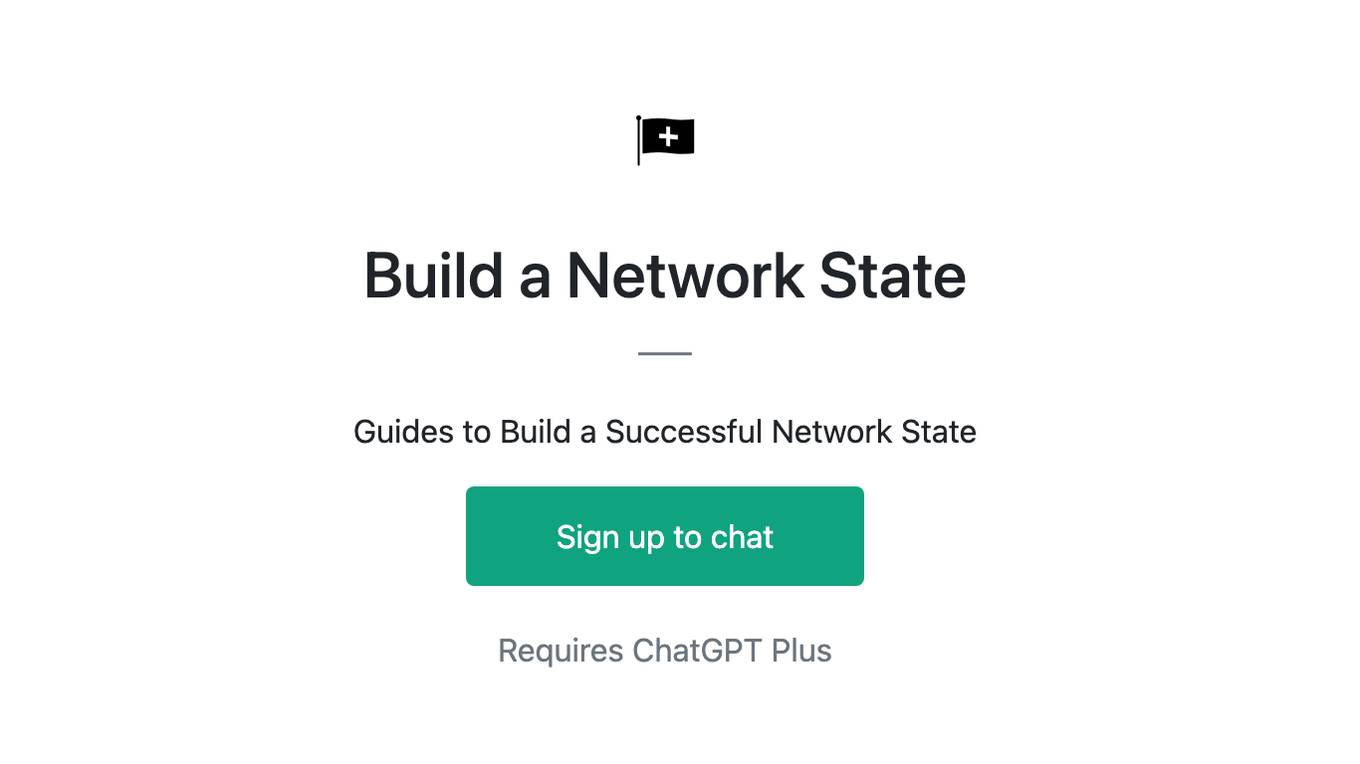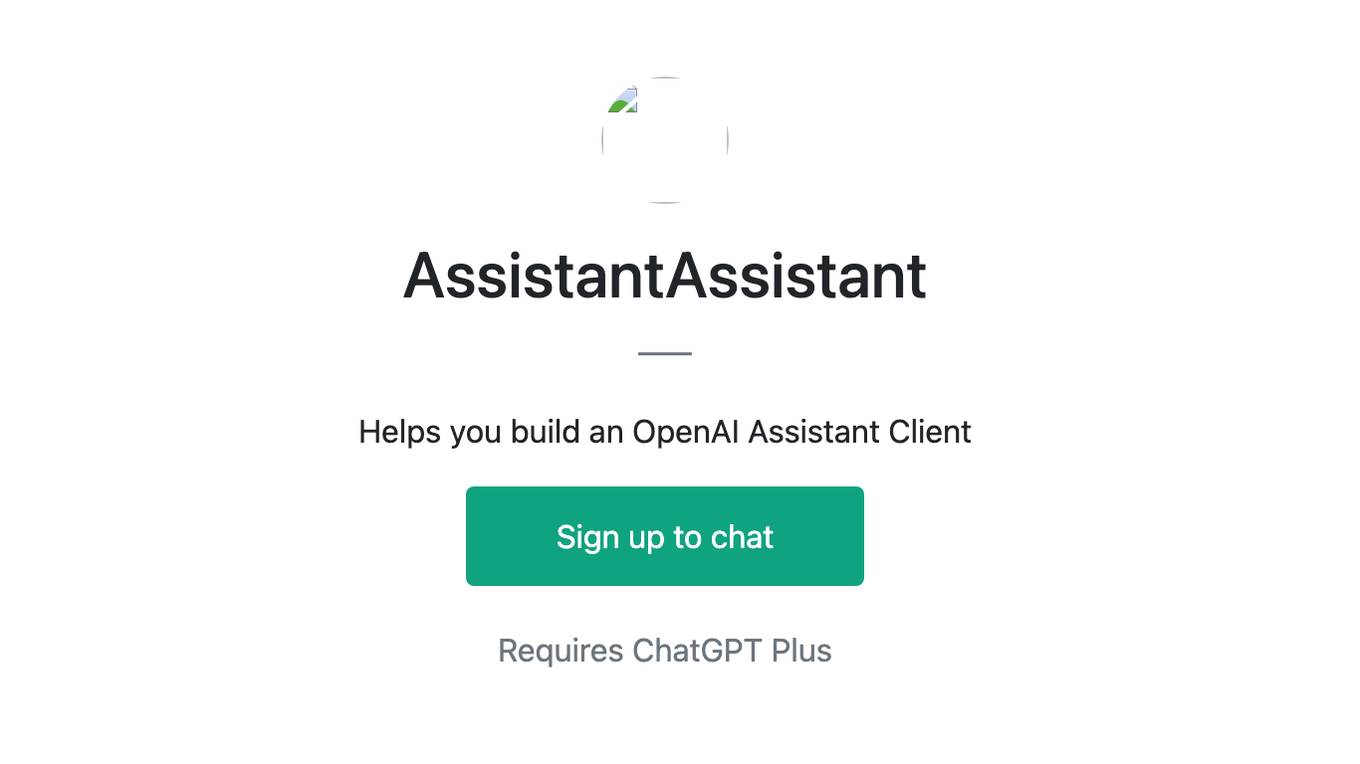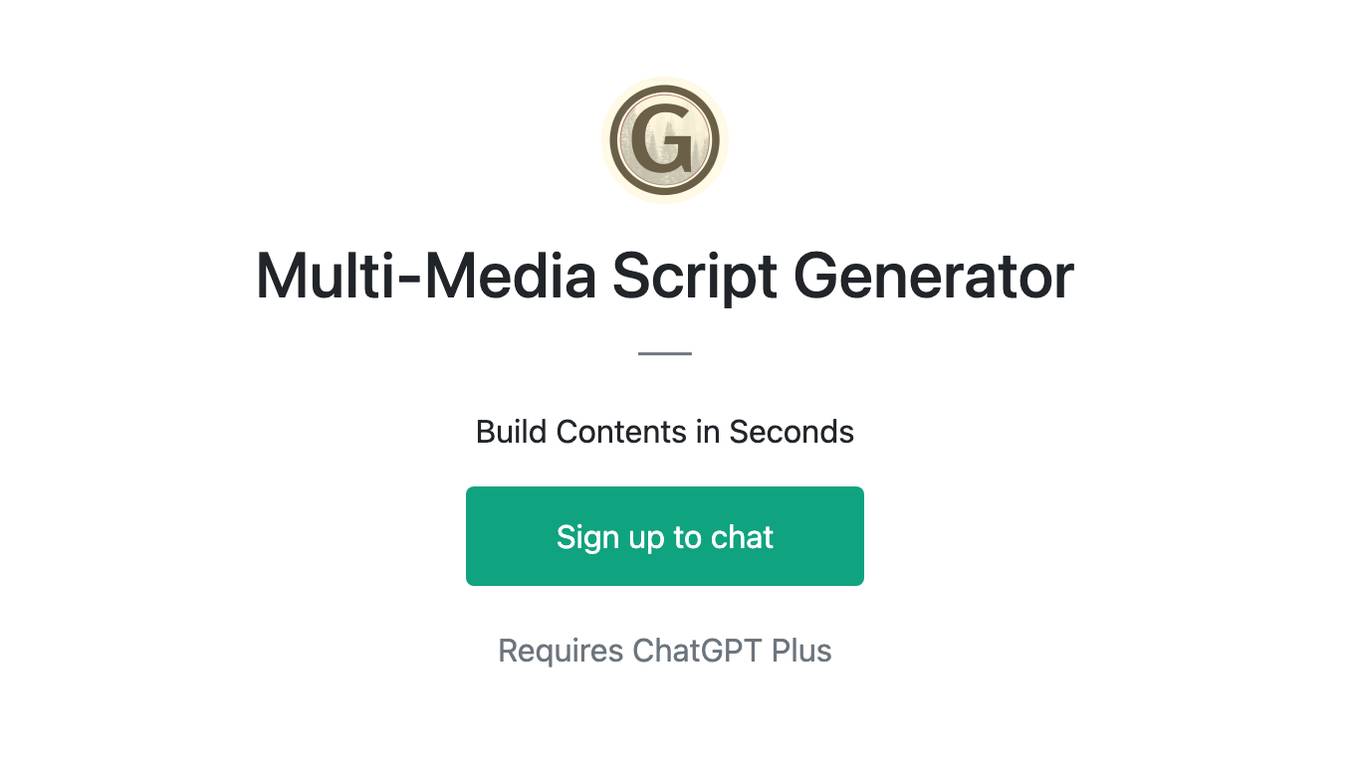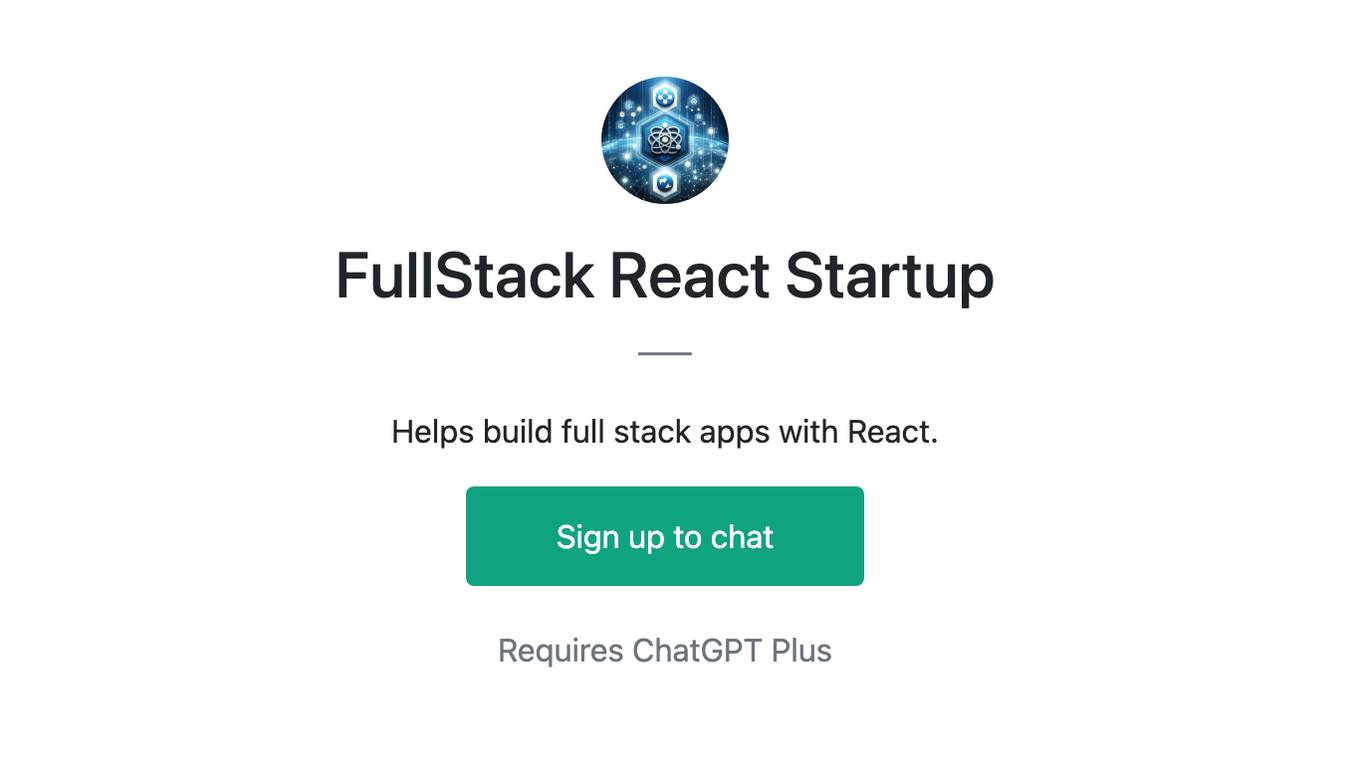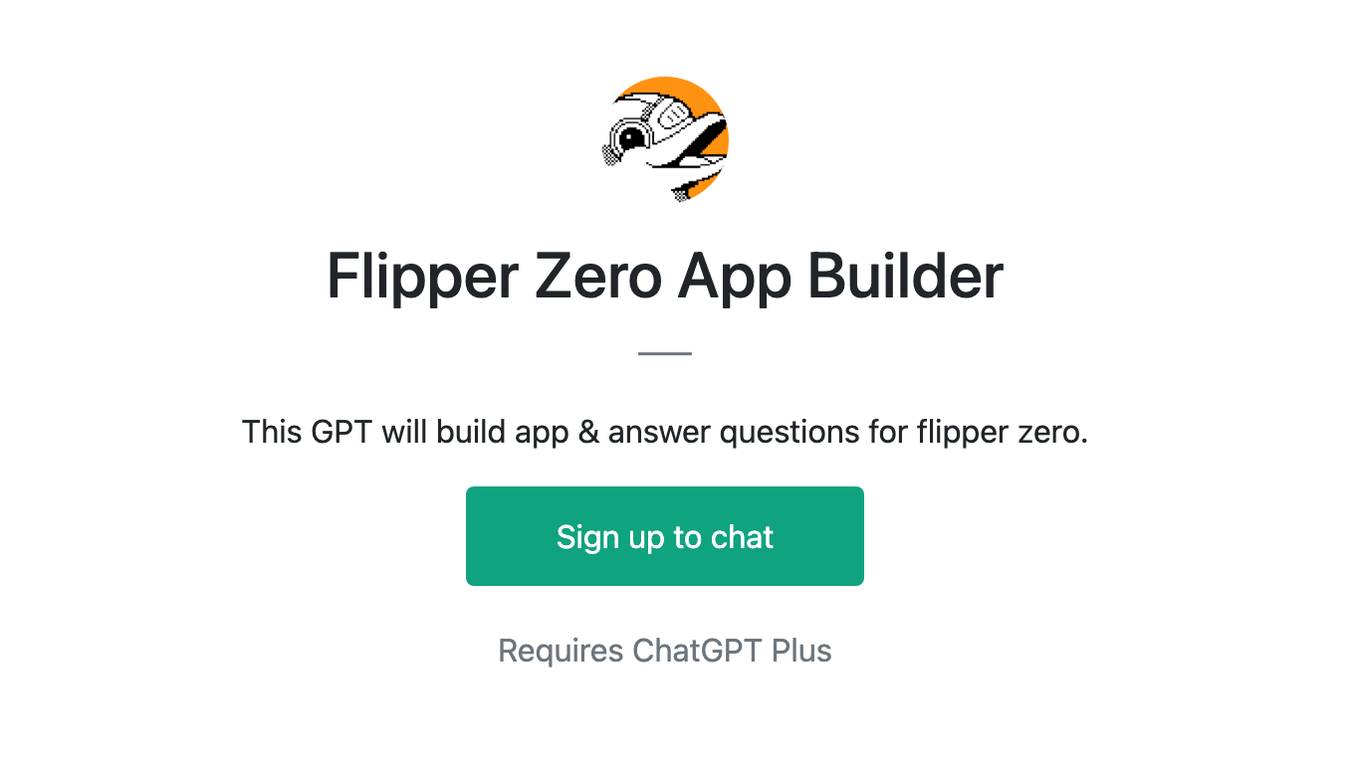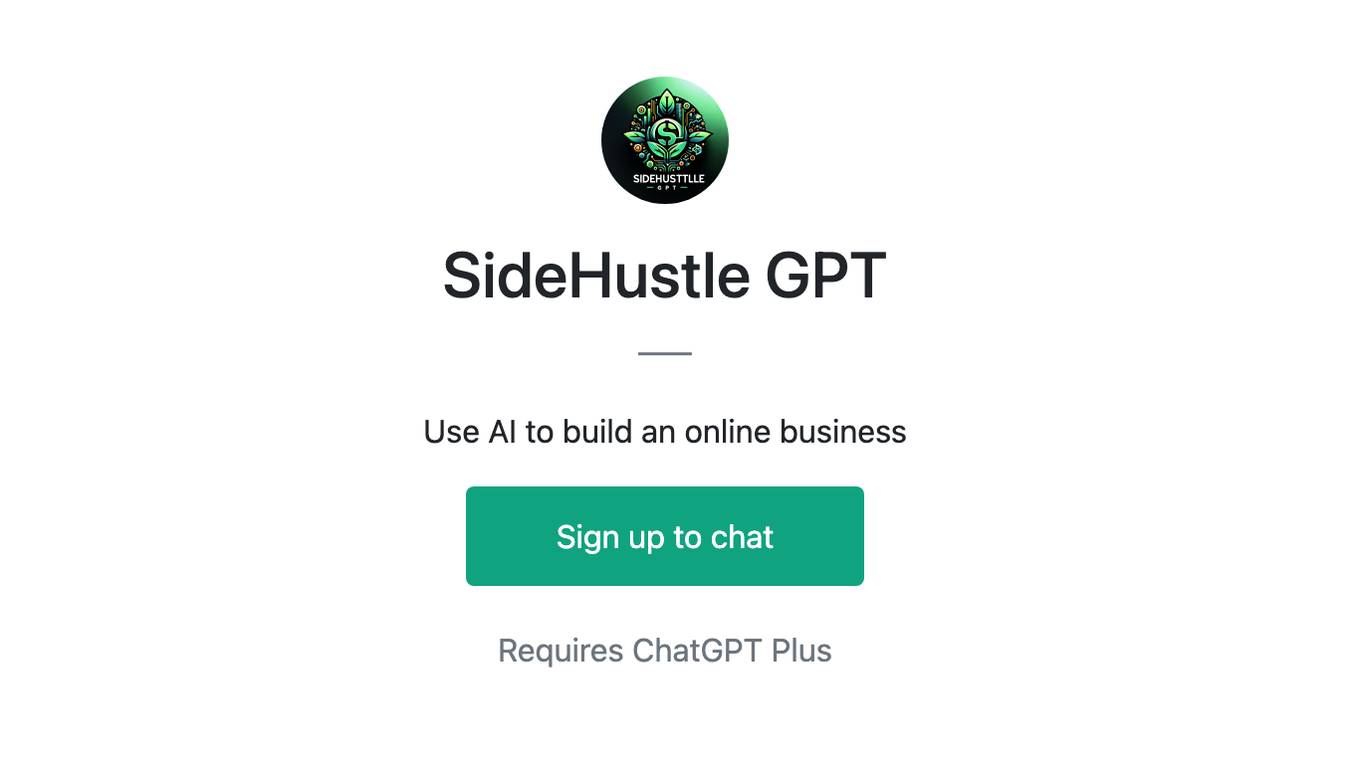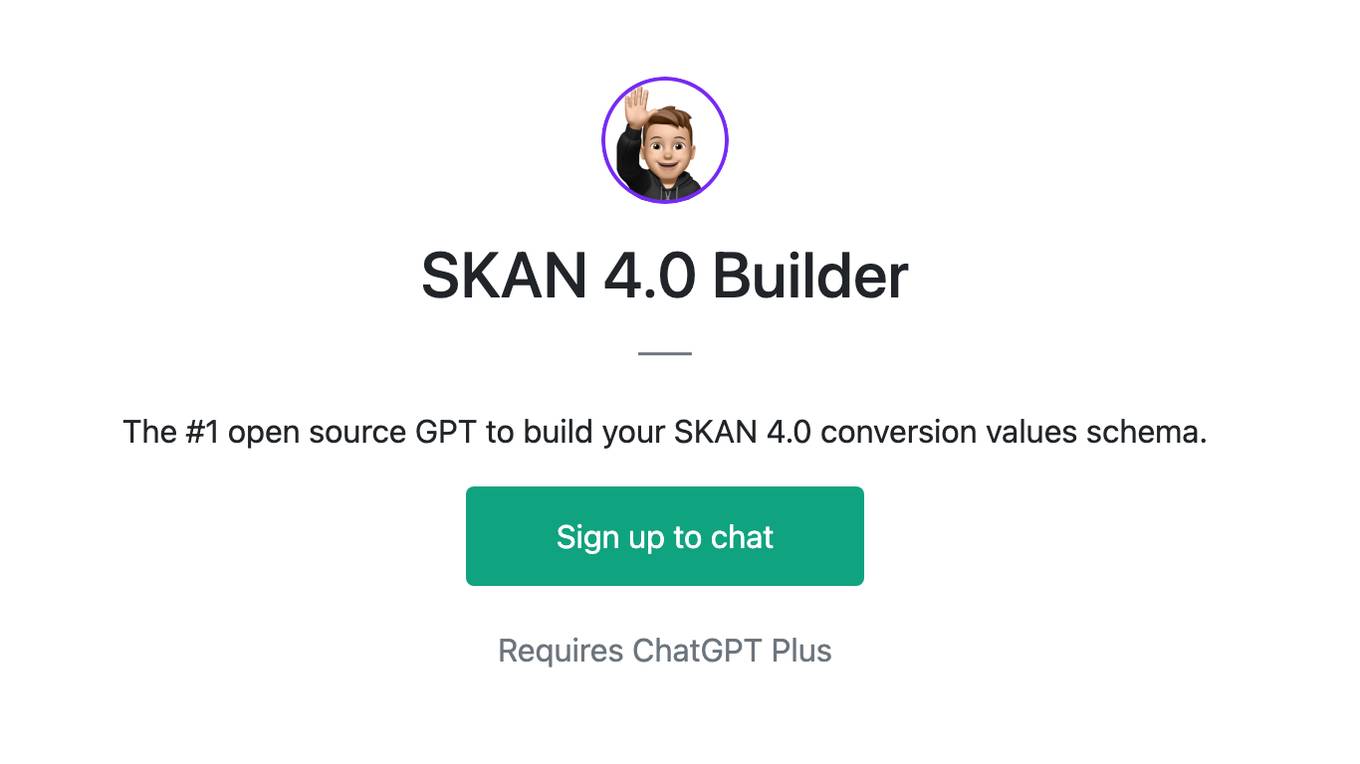Best AI tools for< Build Clusters >
20 - AI tool Sites
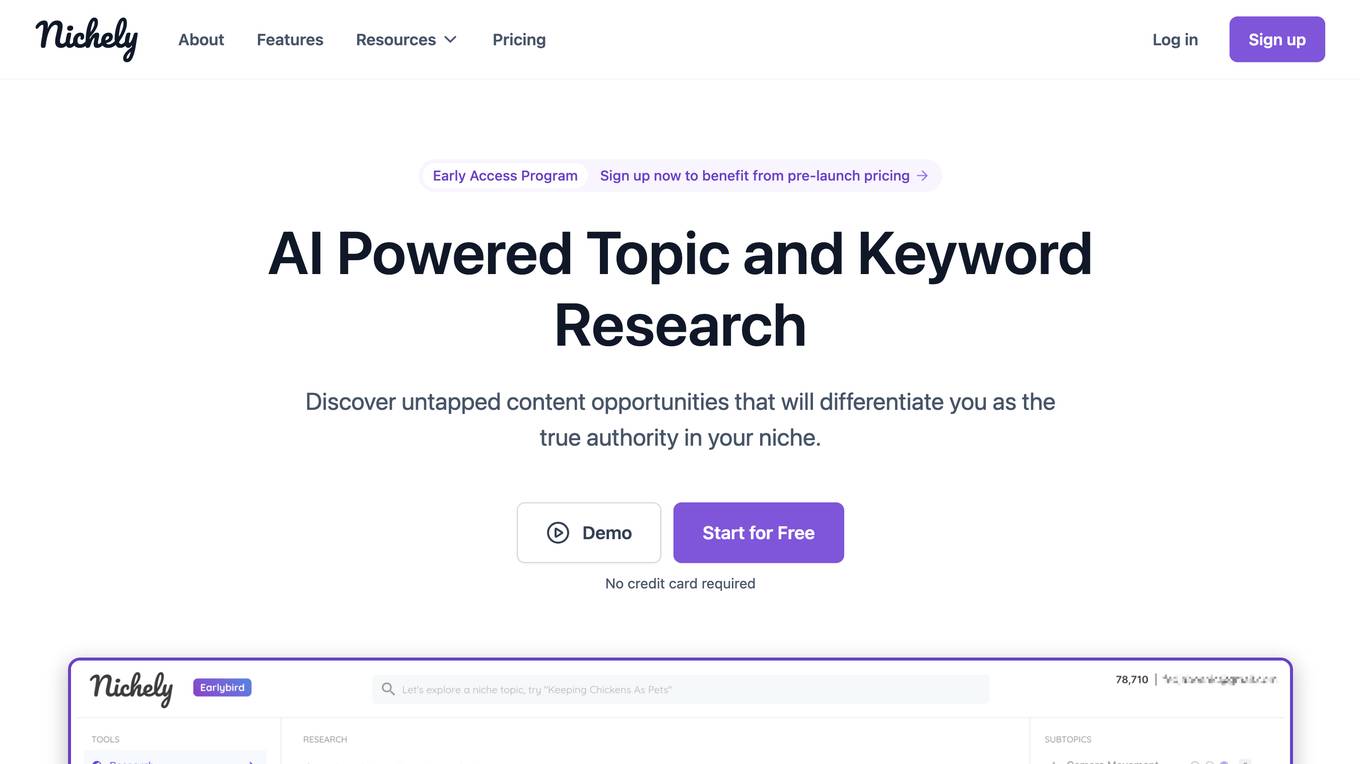
Nichely
Nichely is an AI-powered SEO tool that helps users dominate their niche by utilizing cutting-edge AI technology to navigate and correlate millions of topics in various niches. It offers features such as topic discovery, topic research, and keyword research to assist users in building detailed topical maps and comprehensive topic clusters. With Nichely, users can uncover untapped content opportunities, find relevant long-tail keywords, and analyze SERPs. The tool is designed to cater to a wide range of users, including content/niche website owners, entrepreneurs, and individuals looking to improve their topical authority and construct strong topical clusters.
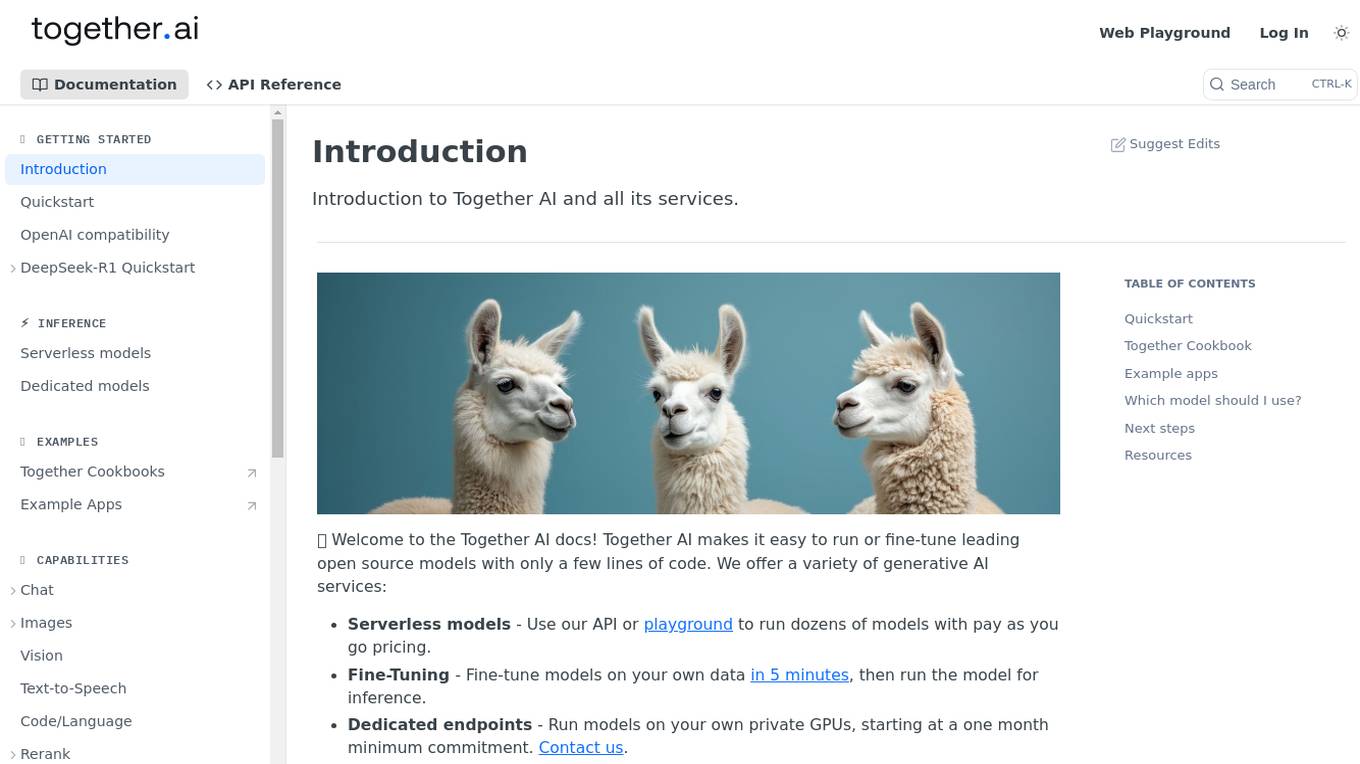
Together AI
Together AI is an AI tool that offers a variety of generative AI services, including serverless models, fine-tuning capabilities, dedicated endpoints, and GPU clusters. Users can run or fine-tune leading open source models with only a few lines of code. The platform provides a range of functionalities for tasks such as chat, vision, text-to-speech, code/language reranking, and more. Together AI aims to simplify the process of utilizing AI models for various applications.
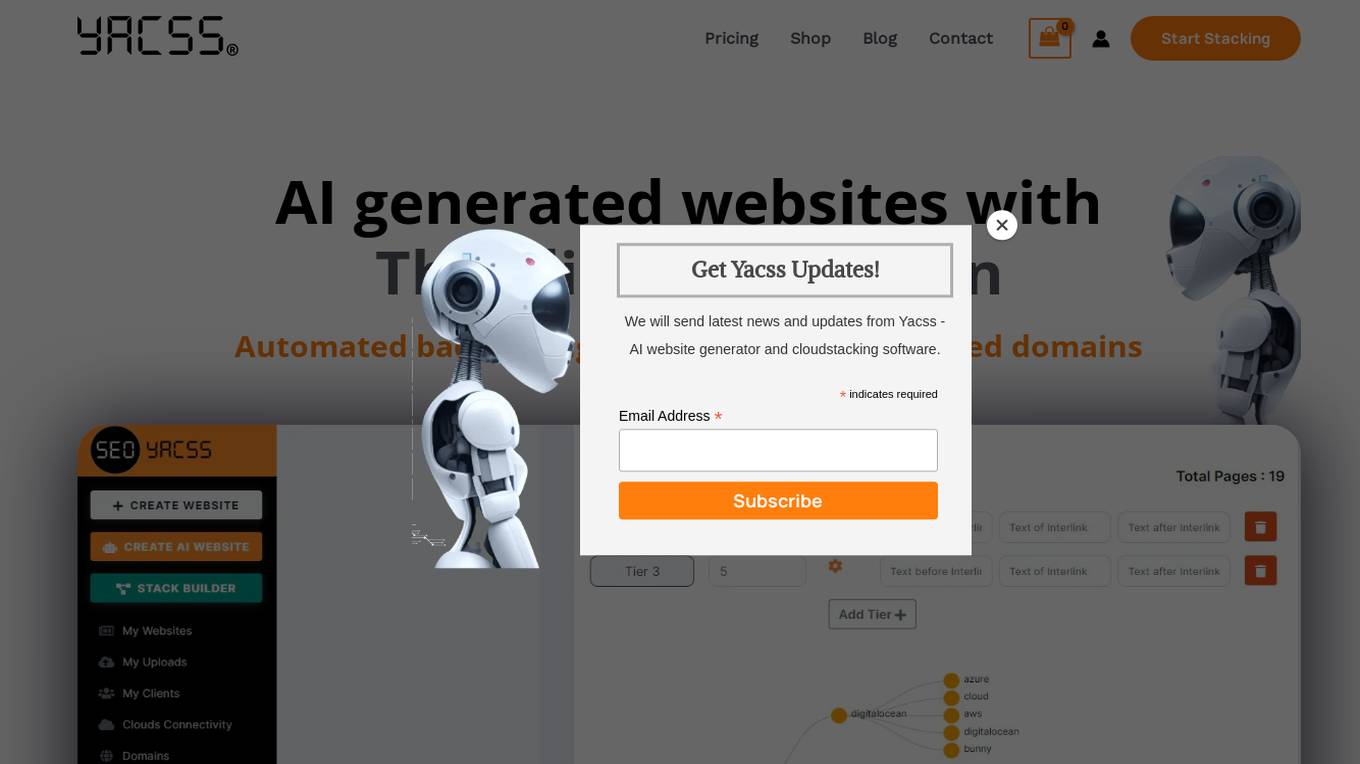
YACSS
YACSS is an AI website generator and Automated Cloud Stacking Software that offers advanced SEO solutions for building websites, generating backlinks, and boosting domain authority. It provides features like automated website creation, cloud-based backlinking, topic clusters, local SEO optimization, and AI content generation. YACSS is designed to streamline the web design process, improve online presence, and enhance Google rankings through innovative technology and automation.

Keywrds.ai
Keywrds.ai is an AI-powered SEO tool that helps users find keywords that their competition may only dream of. By utilizing their AI engine, users can deep dive into any niche and uncover the keywords their target audience is searching for. The tool also allows users to automate answering Google 'People Also Ask' questions, generate unique questions and topics for articles, and build authority within their niche by creating topic clusters. Keywrds.ai provides features such as unlimited projects, AI-generated keywords, questions/topics, blog post outlines, and more to assist users in making informed decisions and driving qualified traffic to their website.
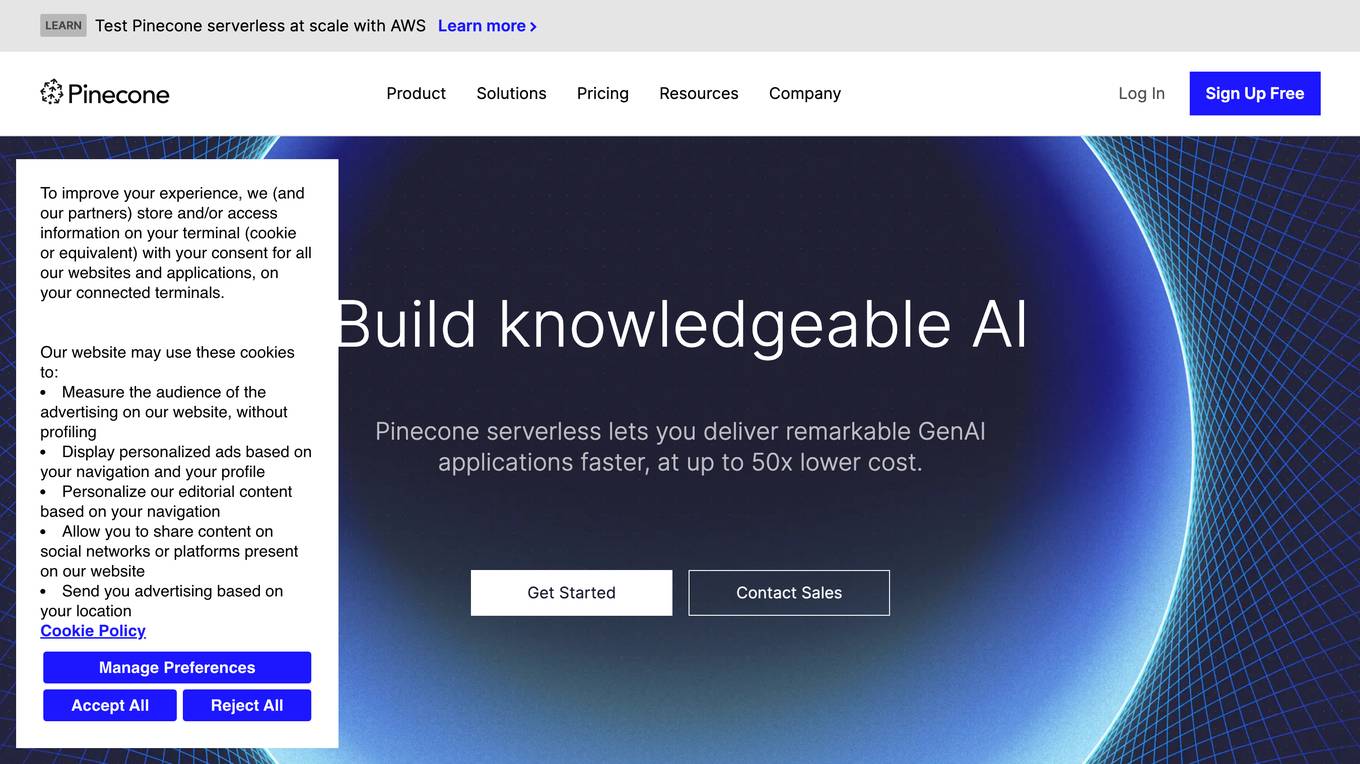
Pinecone
Pinecone is a vector database that helps power AI for the world's best companies. It is a serverless database that lets you deliver remarkable GenAI applications faster, at up to 50x lower cost. Pinecone is easy to use and can be integrated with your favorite cloud provider, data sources, models, frameworks, and more.
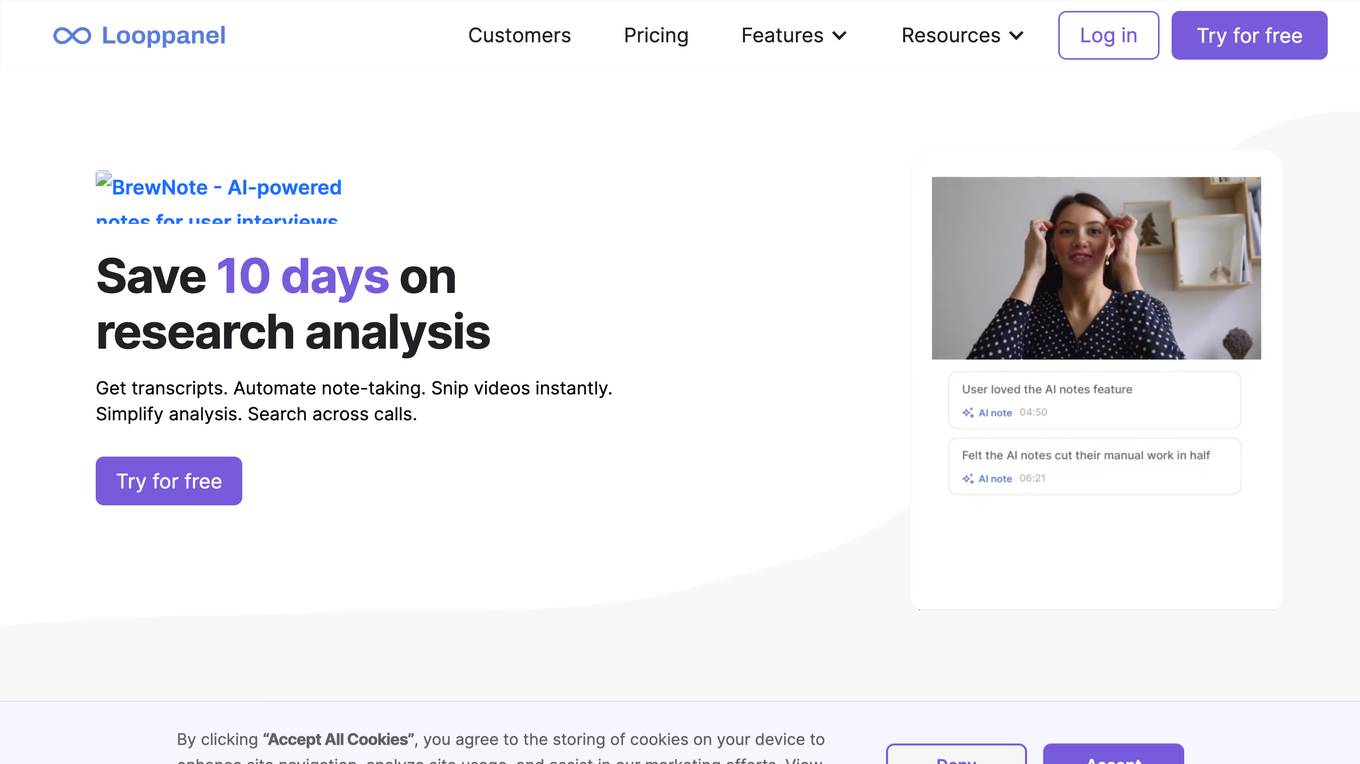
Looppanel
Looppanel is a user research analysis and repository tool that uses AI to help researchers save time and improve the quality of their work. It offers a range of features, including automated transcription, AI note-taking, video snipping, and advanced search capabilities. Looppanel is designed to make it easy for researchers to capture, organize, and analyze their research data, so they can focus on what matters most: uncovering insights and making better decisions.
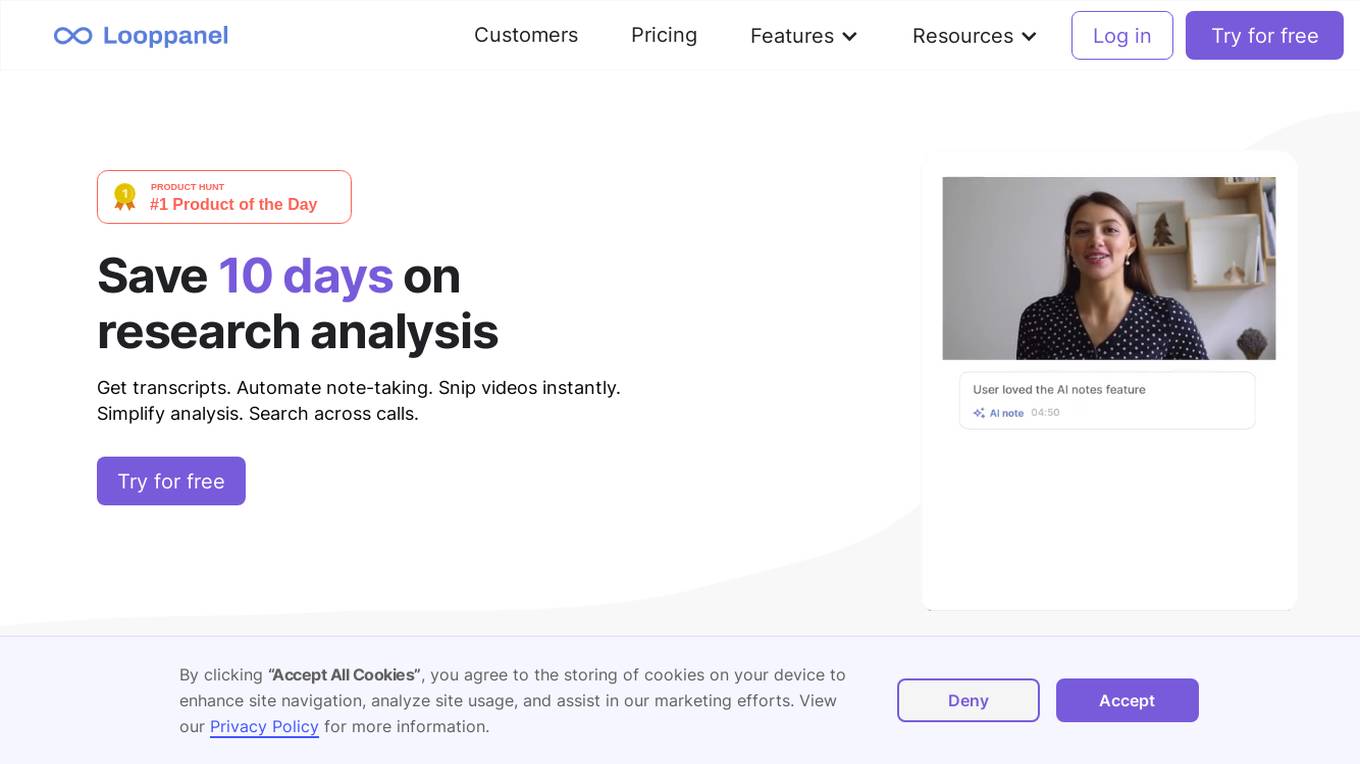
Looppanel
Looppanel is an AI-powered research assistant that revolutionizes the way research data is managed. It automatically records calls, transcribes them, and centralizes all research data in one place. Looppanel's highly accurate transcripts support multiple languages and accents, enabling users to focus on interviews while AI takes notes. The platform simplifies analysis, allows for time-stamped note-taking, and facilitates collaboration among team members. Looppanel ensures data security and compliance with high standards, making it a valuable tool for researchers and professionals.

Backend.AI
Backend.AI is an enterprise-scale cluster backend for AI frameworks that offers scalability, GPU virtualization, HPC optimization, and DGX-Ready software products. It provides a fast and efficient way to build, train, and serve AI models of any type and size, with flexible infrastructure options. Backend.AI aims to optimize backend resources, reduce costs, and simplify deployment for AI developers and researchers. The platform integrates seamlessly with existing tools and offers fractional GPU usage and pay-as-you-play model to maximize resource utilization.
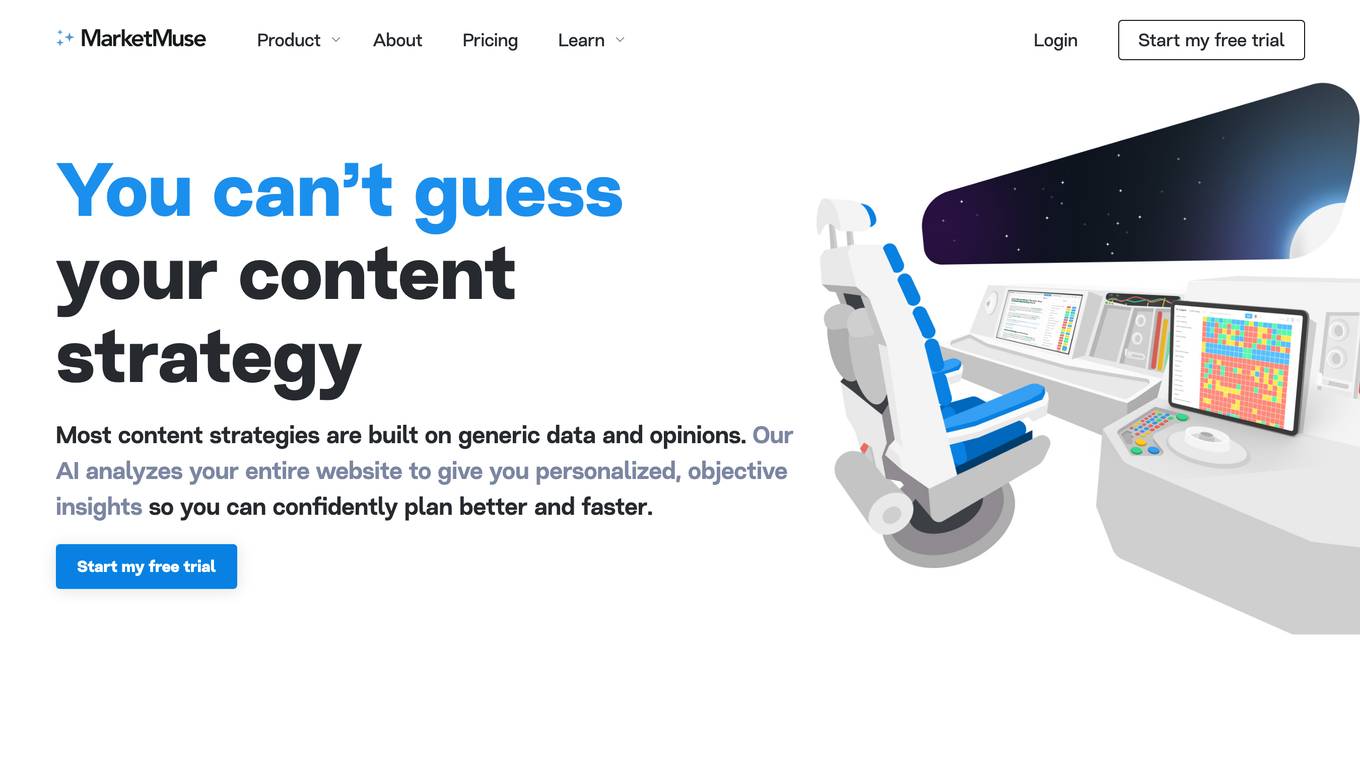
MarketMuse
MarketMuse is an AI-powered content planning and optimization software designed to help users create high-quality content that ranks higher in search engines. The software analyzes existing content inventory, identifies topic clusters, and provides personalized recommendations to improve content strategy. MarketMuse assists in content planning, competitor analysis, and personalized difficulty assessment to enhance content creation and optimization processes. Trusted by content teams, MarketMuse offers a data-driven approach to content development, enabling users to leverage their topical authority and stand out from competitors.
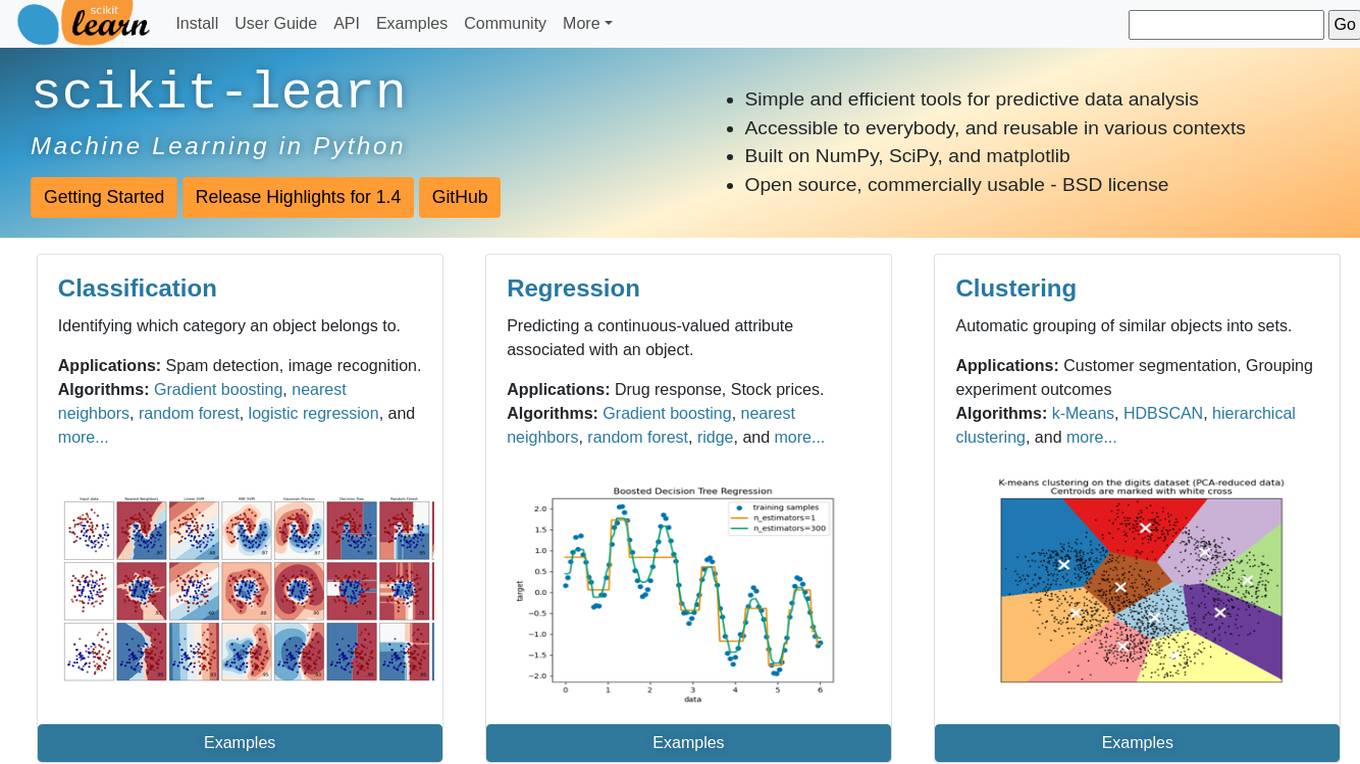
scikit-learn
Scikit-learn is a free software machine learning library for the Python programming language. It features various classification, regression and clustering algorithms including support vector machines, random forests, gradient boosting, k-means and DBSCAN, and is designed to interoperate with the Python numerical and scientific libraries NumPy and SciPy.

Mighty Networks
Mighty Networks is an AI-powered community platform that enables users to create and manage memberships, online courses, challenges, and events. The platform leverages AI technology, known as People Magic, to automate community building processes, enhance member engagement, and increase profitability. With features like AI-powered member clustering, revenue calculators, and branded app services, Mighty Networks offers a comprehensive solution for individuals and businesses looking to build and monetize online communities. The platform aims to simplify the community creation process by providing tools to quickly launch and grow a successful digital business.
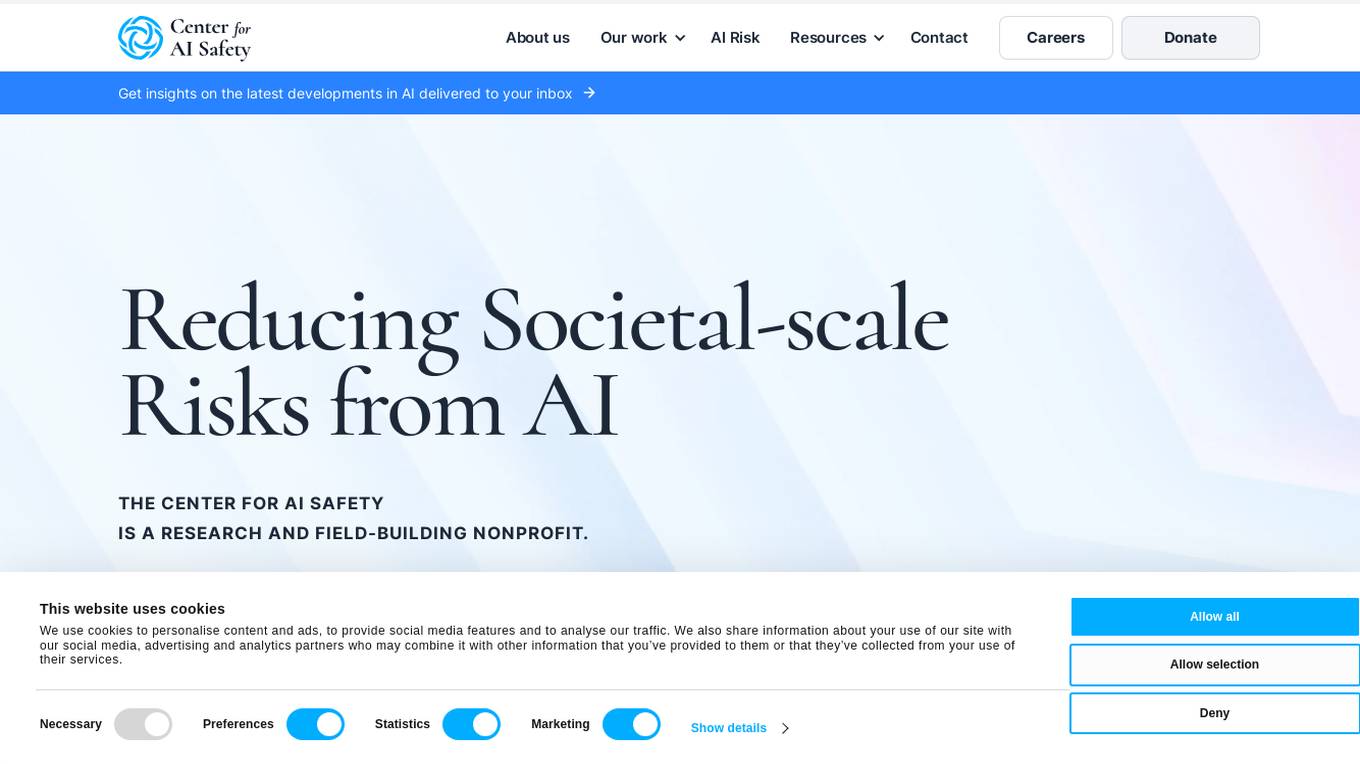
Center for AI Safety (CAIS)
The Center for AI Safety (CAIS) is a research and field-building nonprofit organization based in San Francisco. They conduct impactful research, advocacy projects, and provide resources to reduce societal-scale risks associated with artificial intelligence (AI). CAIS focuses on technical AI safety research, field-building projects, and offers a compute cluster for AI/ML safety projects. They aim to develop and use AI safely to benefit society, addressing inherent risks and advocating for safety standards.
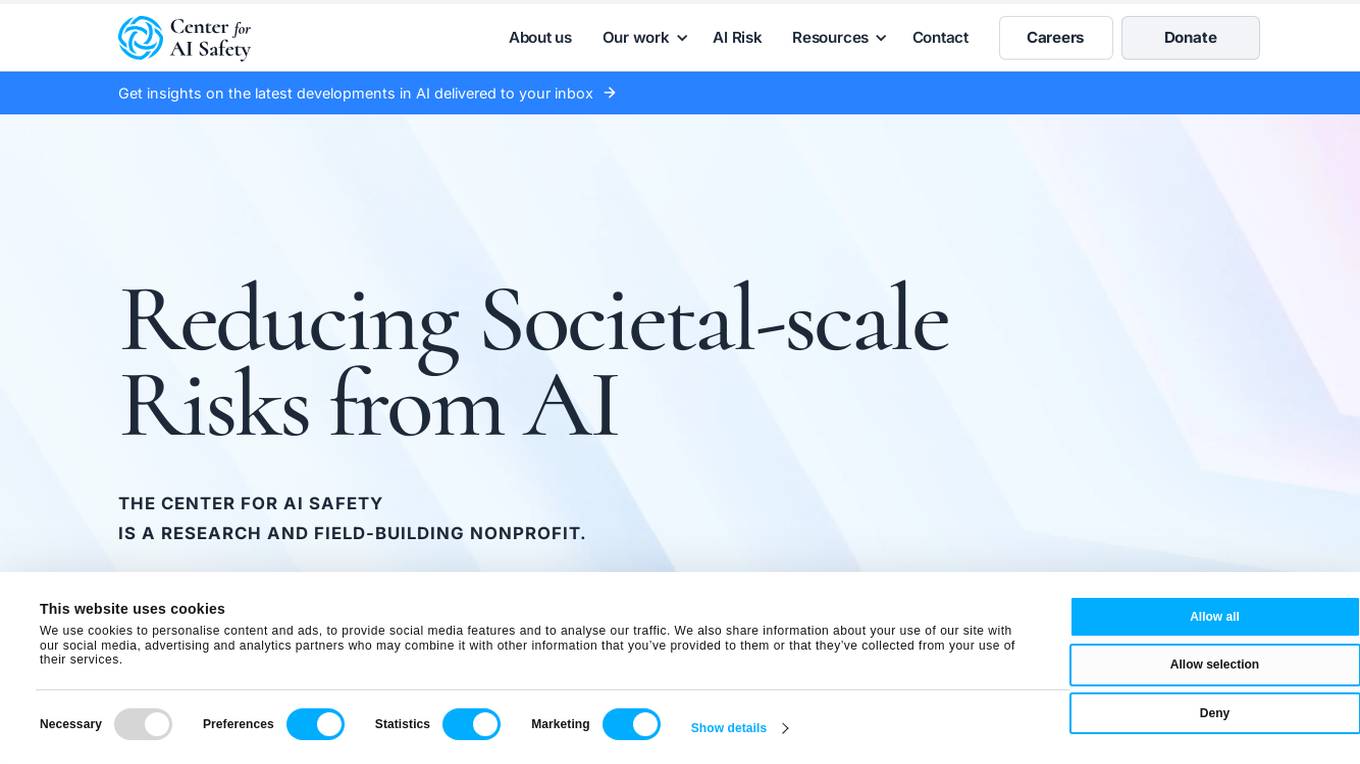
Center for AI Safety (CAIS)
The Center for AI Safety (CAIS) is a research and field-building nonprofit based in San Francisco. Their mission is to reduce societal-scale risks associated with artificial intelligence (AI) by conducting impactful research, building the field of AI safety researchers, and advocating for safety standards. They offer resources such as a compute cluster for AI/ML safety projects, a blog with in-depth examinations of AI safety topics, and a newsletter providing updates on AI safety developments. CAIS focuses on technical and conceptual research to address the risks posed by advanced AI systems.

Groq
Groq is a fast AI inference tool that offers GroqCloud™ Platform and GroqRack™ Cluster for developers to build and deploy AI models with ultra-low-latency inference. It provides instant intelligence for openly-available models like Llama 3.1 and is known for its speed and compatibility with other AI providers. Groq powers leading openly-available AI models and has gained recognition in the AI chip industry. The tool has received significant funding and valuation, positioning itself as a strong challenger to established players like Nvidia.
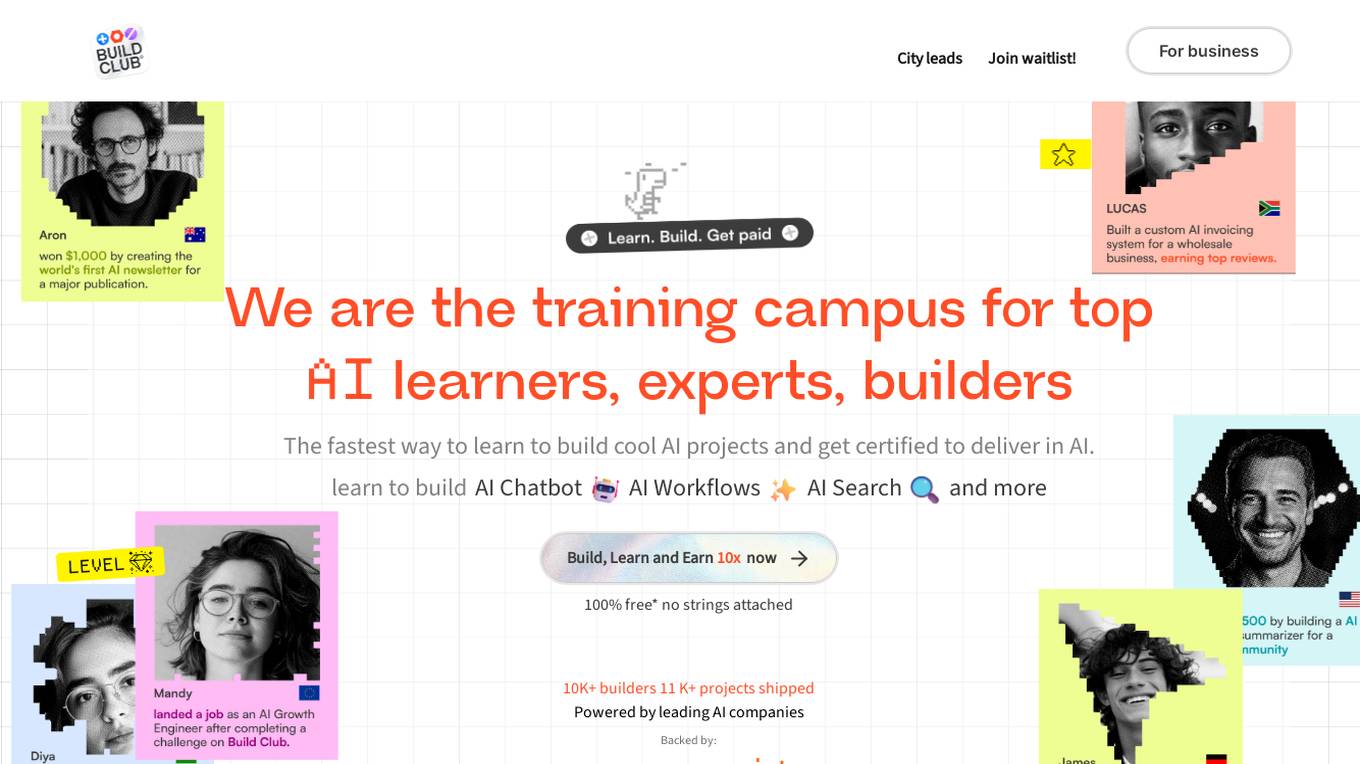
Build Club
Build Club is a leading training campus for AI learners, experts, and builders. It offers a platform where individuals can upskill into AI careers, get certified by top AI companies, learn the latest AI tools, and earn money by solving real problems. The community at Build Club consists of AI learners, engineers, consultants, and founders who collaborate on cutting-edge AI projects. The platform provides challenges, support, and resources to help individuals build AI projects and advance their skills in the field.

Unified DevOps platform to build AI applications
This is a unified DevOps platform to build AI applications. It provides a comprehensive set of tools and services to help developers build, deploy, and manage AI applications. The platform includes a variety of features such as a code editor, a debugger, a profiler, and a deployment manager. It also provides access to a variety of AI services, such as natural language processing, machine learning, and computer vision.
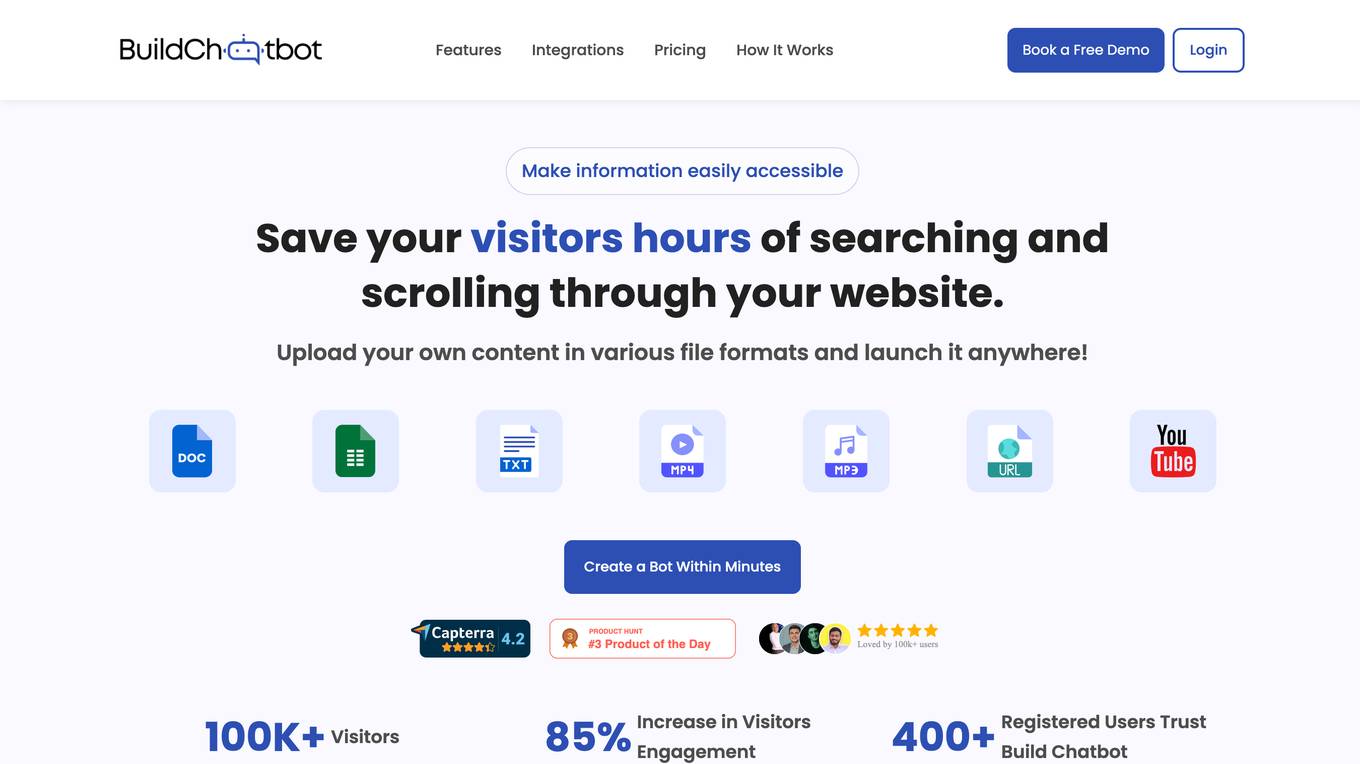
Build Chatbot
Build Chatbot is a no-code chatbot builder designed to simplify the process of creating chatbots. It enables users to build their chatbot without any coding knowledge, auto-train it with personalized content, and get the chatbot ready with an engaging UI. The platform offers various features to enhance user engagement, provide personalized responses, and streamline communication with website visitors. Build Chatbot aims to save time for both businesses and customers by making information easily accessible and transforming visitors into satisfied customers.
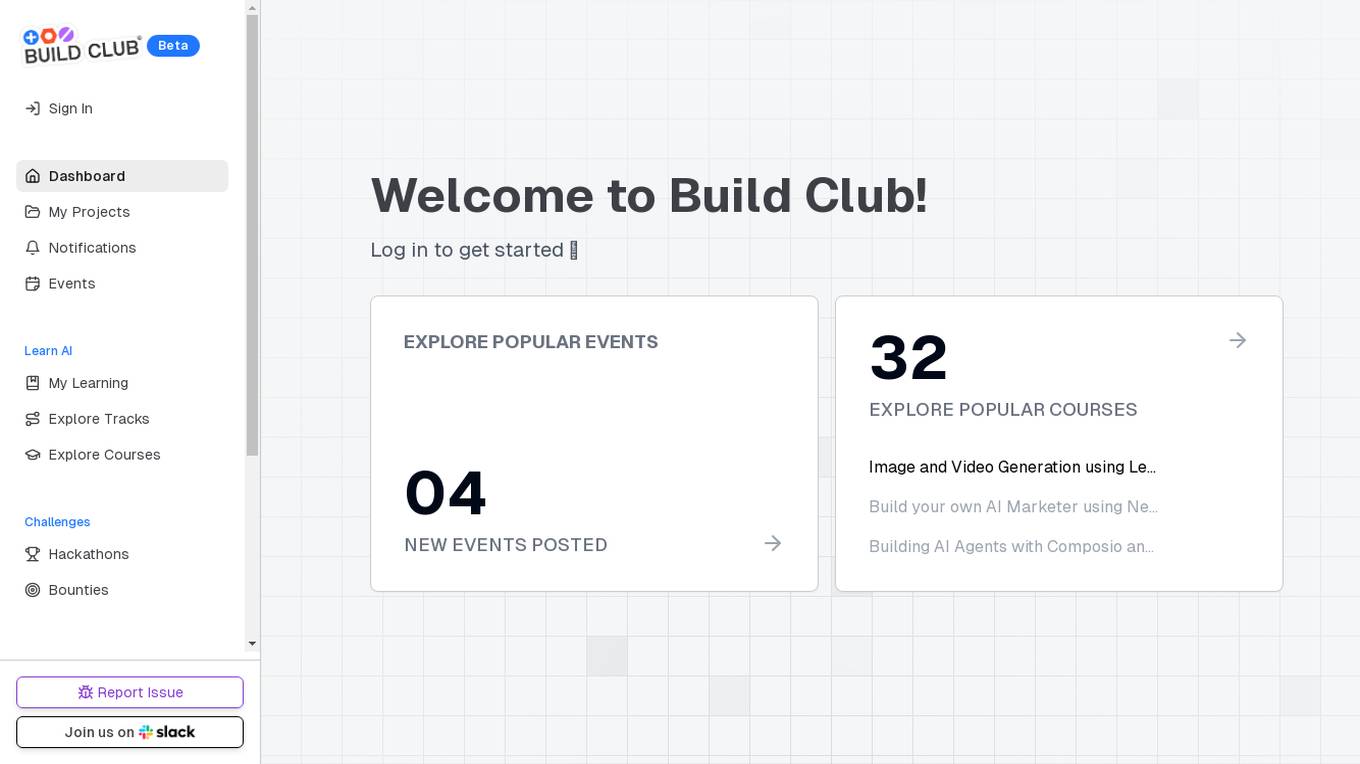
Build Club
Build Club is an AI tool designed to help individuals learn and explore various aspects of artificial intelligence. The platform offers a wide range of courses, challenges, hackathons, and community projects to enhance users' AI skills. Users can build AI models for tasks like image and video generation, AI marketing, and creating AI agents. Build Club aims to create a collaborative learning environment for AI enthusiasts to grow their knowledge and skills in the field of artificial intelligence.
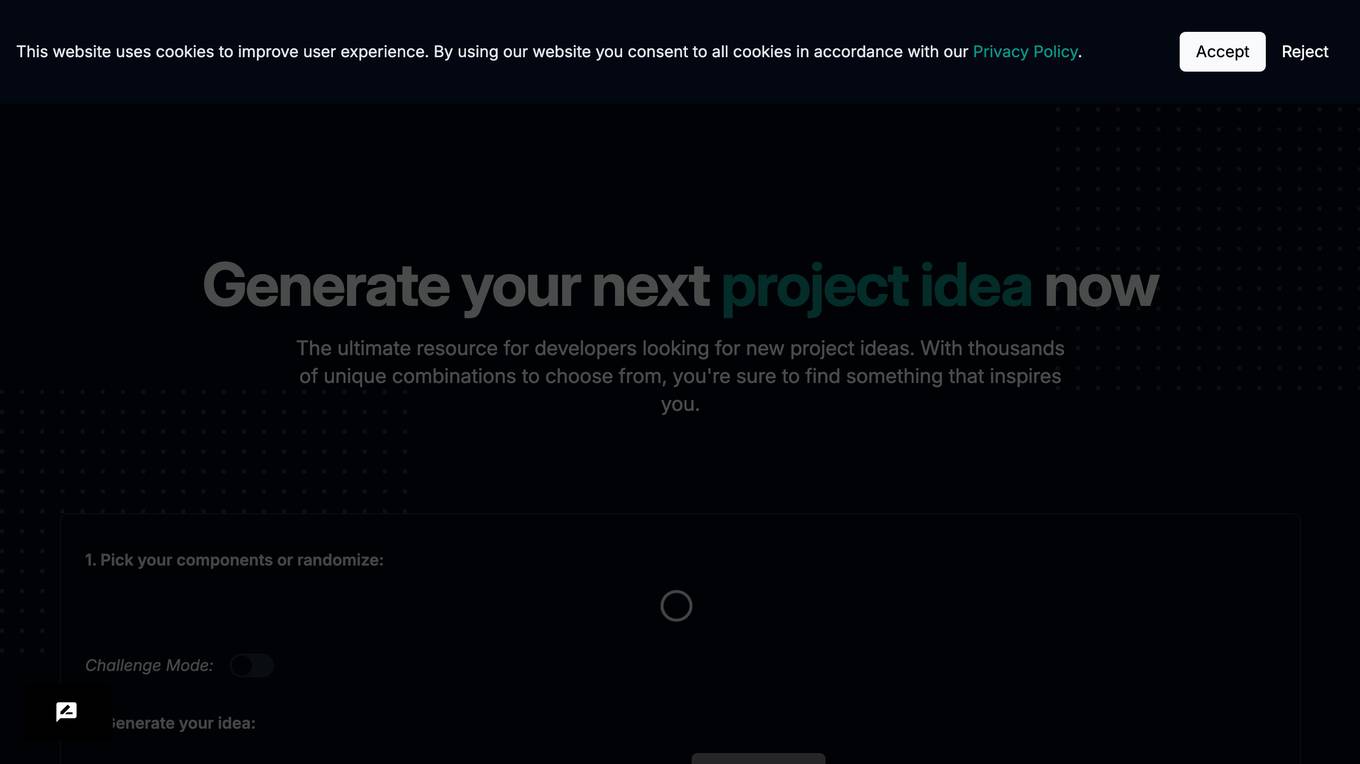
What should I build next?
The website 'What should I build next?' is a platform designed to help developers generate random development project ideas. It serves as the ultimate resource for developers seeking inspiration for their next project. Users can pick components or randomize to generate unique project ideas. The platform also offers a Challenge Mode for added excitement. Additionally, free credits are rewarded to active users daily, ensuring a continuous flow of ideas. The website aims to support developers in overcoming creative blocks and sparking innovation.
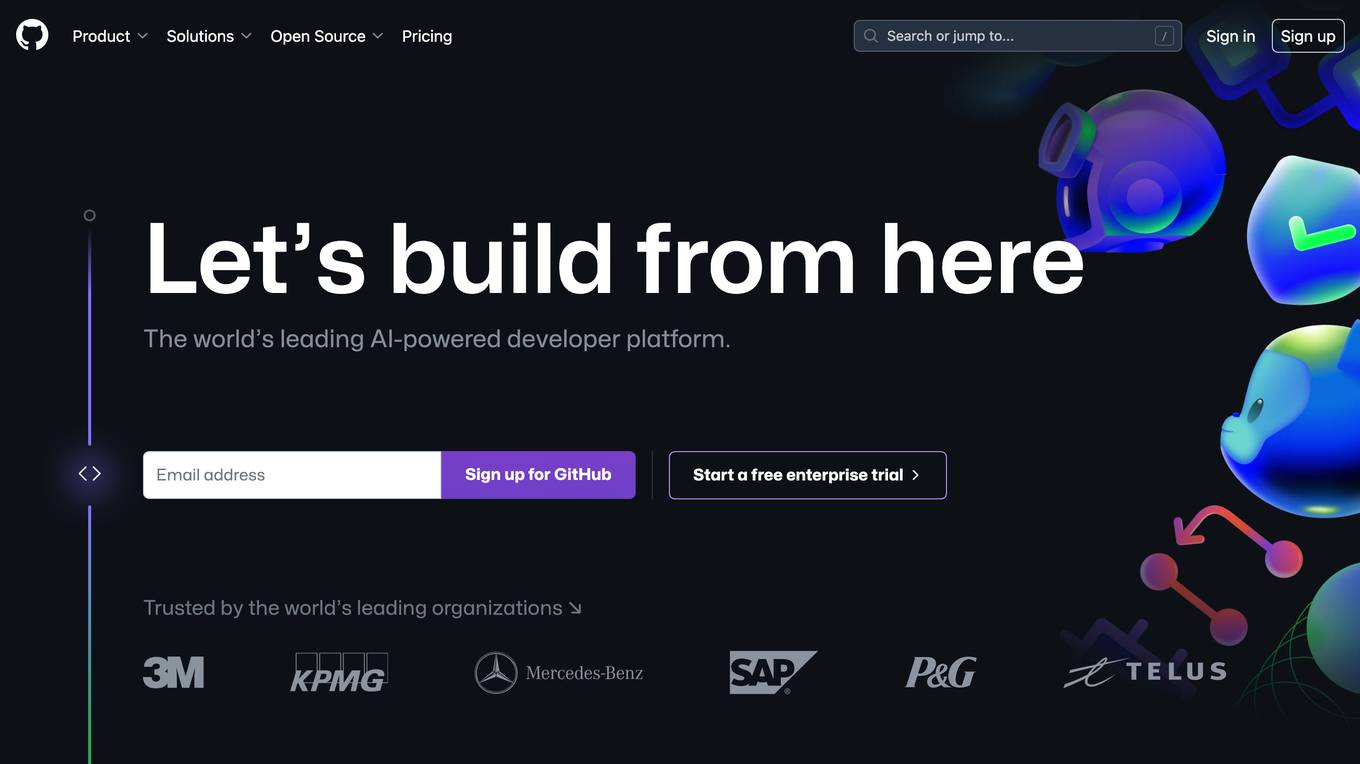
GitHub
GitHub is a collaborative platform that allows users to build and ship software efficiently. GitHub Copilot, an AI-powered tool, helps developers write better code by providing coding assistance, automating workflows, and enhancing security. The platform offers features such as instant dev environments, code review, code search, and collaboration tools. GitHub is widely used by enterprises, small and medium teams, startups, and nonprofits across various industries. It aims to simplify the development process, increase productivity, and improve the overall developer experience.
20 - Open Source AI Tools
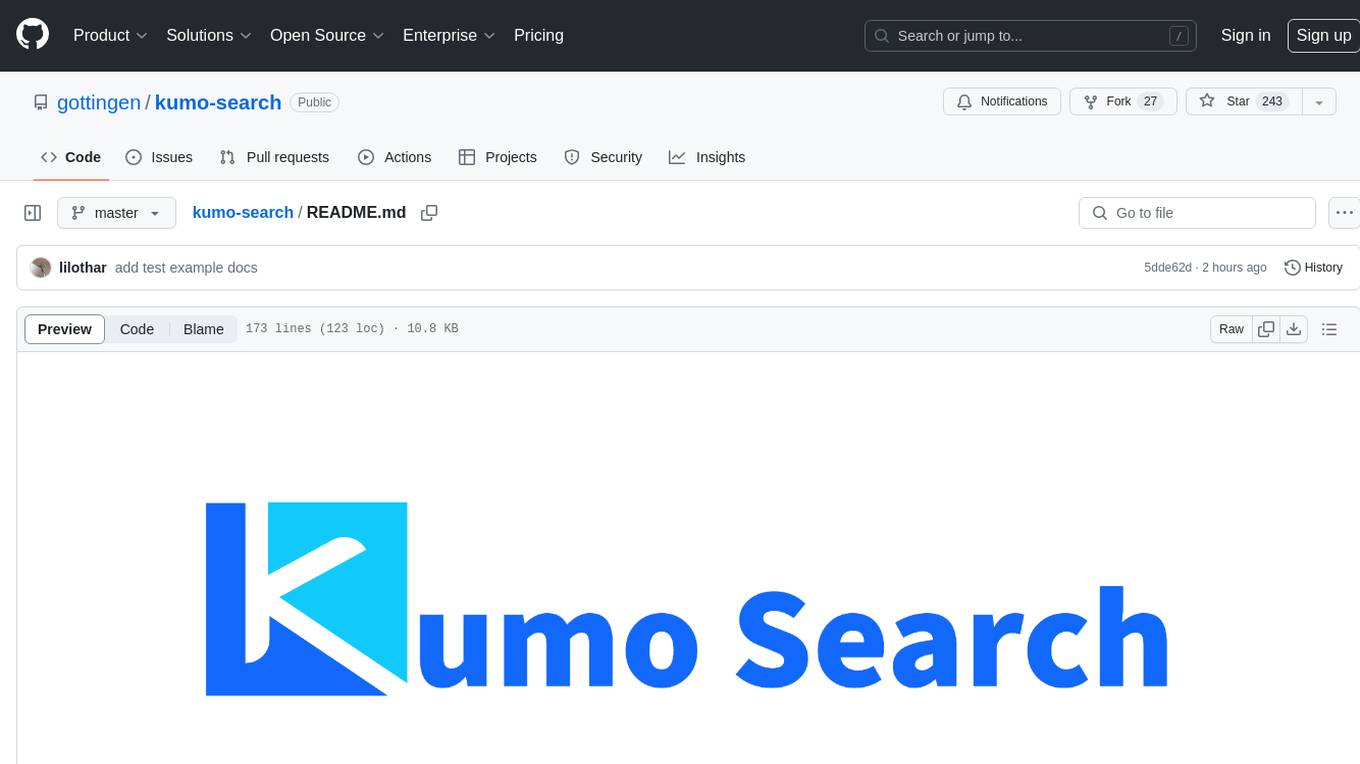
kumo-search
Kumo search is an end-to-end search engine framework that supports full-text search, inverted index, forward index, sorting, caching, hierarchical indexing, intervention system, feature collection, offline computation, storage system, and more. It runs on the EA (Elastic automic infrastructure architecture) platform, enabling engineering automation, service governance, real-time data, service degradation, and disaster recovery across multiple data centers and clusters. The framework aims to provide a ready-to-use search engine framework to help users quickly build their own search engines. Users can write business logic in Python using the AOT compiler in the project, which generates C++ code and binary dynamic libraries for rapid iteration of the search engine.
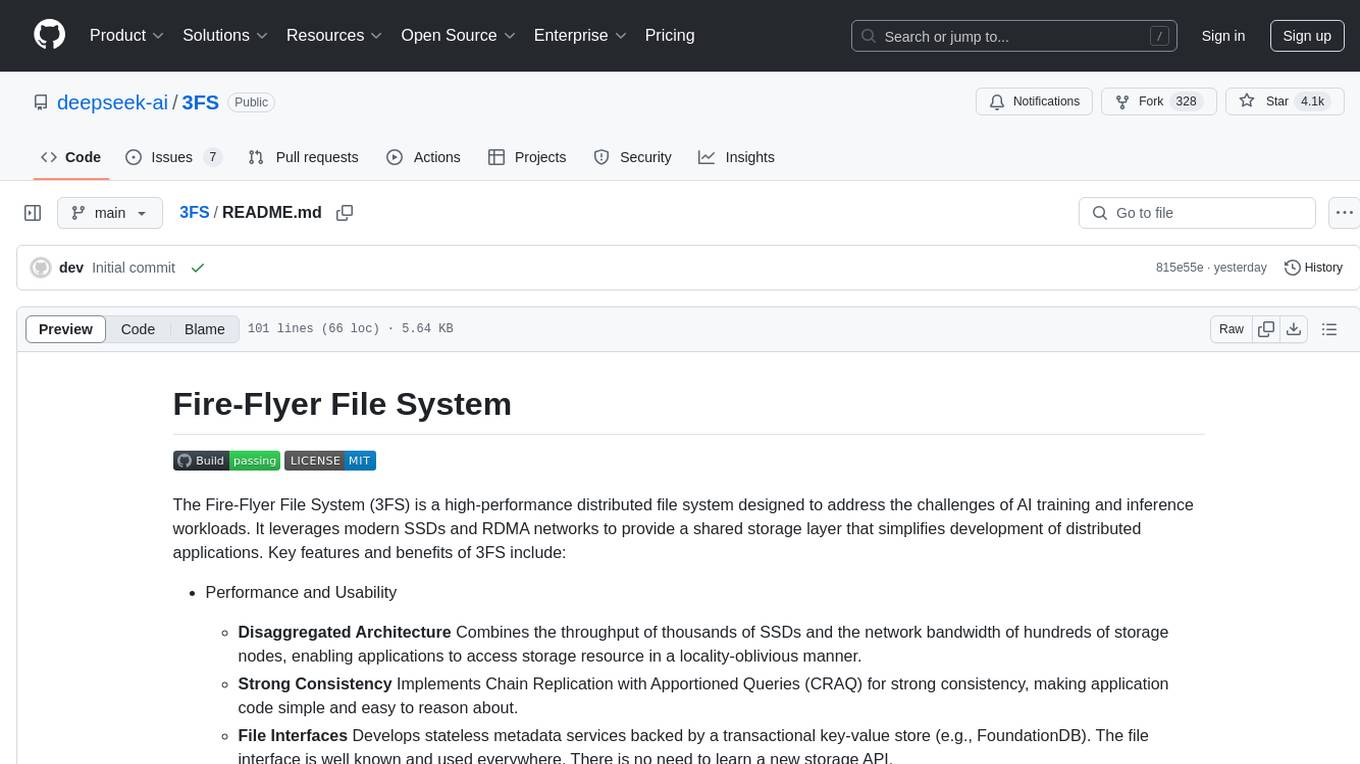
3FS
The Fire-Flyer File System (3FS) is a high-performance distributed file system designed for AI training and inference workloads. It leverages modern SSDs and RDMA networks to provide a shared storage layer that simplifies development of distributed applications. Key features include performance, disaggregated architecture, strong consistency, file interfaces, data preparation, dataloaders, checkpointing, and KVCache for inference. The system is well-documented with design notes, setup guide, USRBIO API reference, and P specifications. Performance metrics include peak throughput, GraySort benchmark results, and KVCache optimization. The source code is available on GitHub for cloning and installation of dependencies. Users can build 3FS and run test clusters following the provided instructions. Issues can be reported on the GitHub repository.
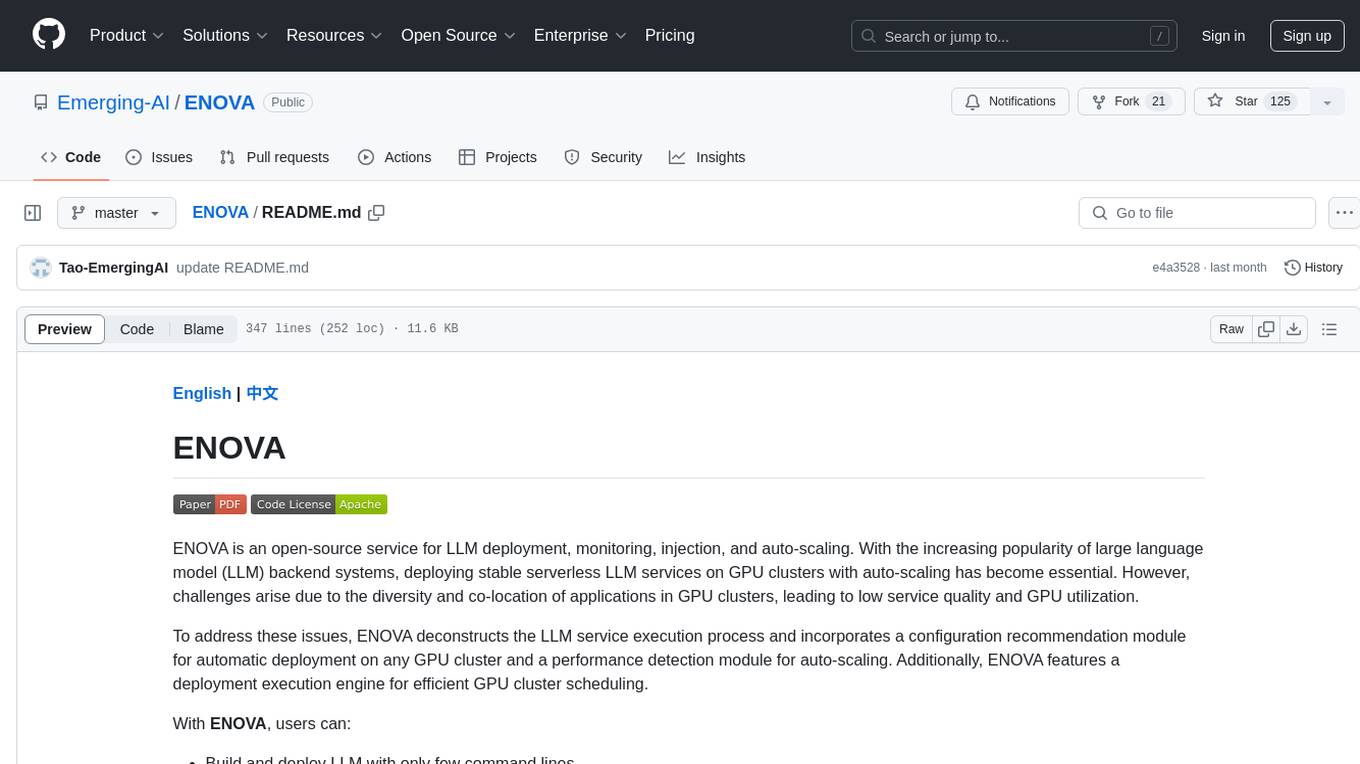
ENOVA
ENOVA is an open-source service for Large Language Model (LLM) deployment, monitoring, injection, and auto-scaling. It addresses challenges in deploying stable serverless LLM services on GPU clusters with auto-scaling by deconstructing the LLM service execution process and providing configuration recommendations and performance detection. Users can build and deploy LLM with few command lines, recommend optimal computing resources, experience LLM performance, observe operating status, achieve load balancing, and more. ENOVA ensures stable operation, cost-effectiveness, efficiency, and strong scalability of LLM services.
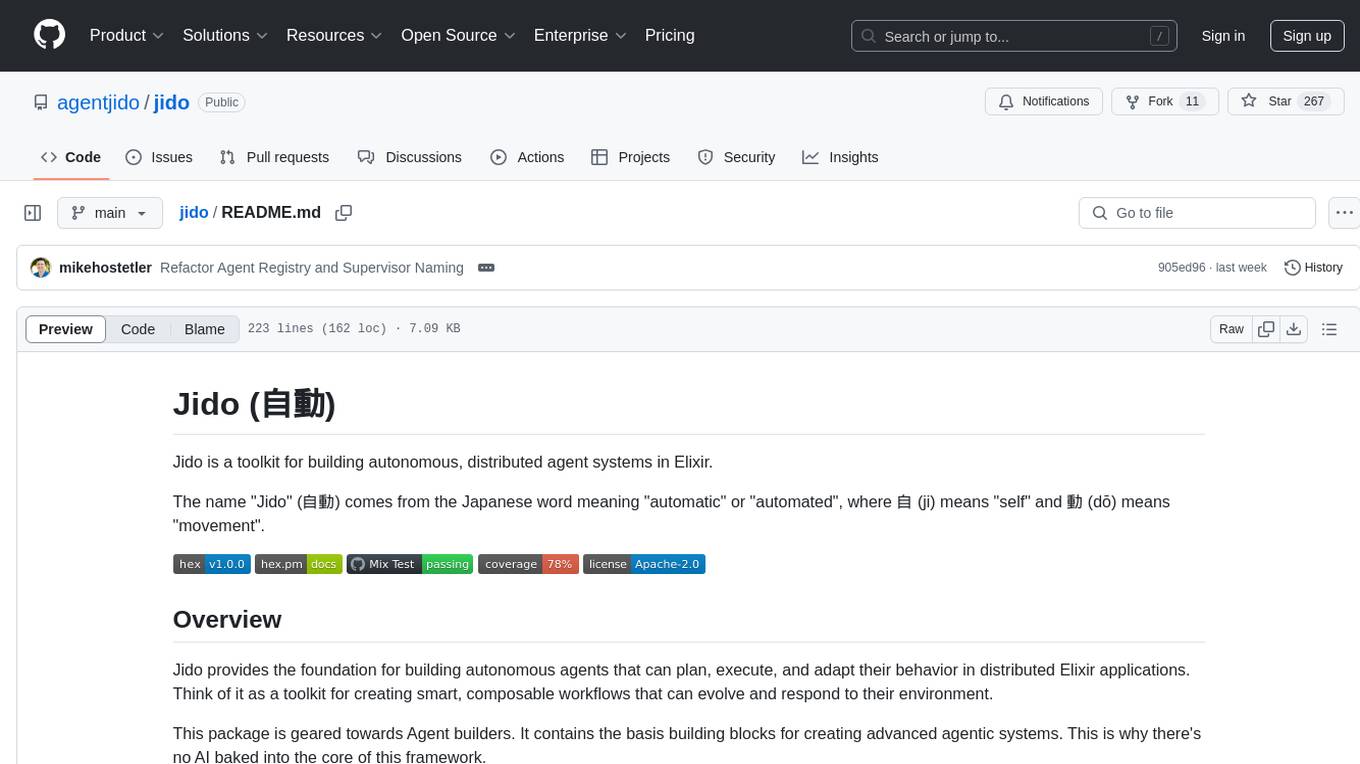
jido
Jido is a toolkit for building autonomous, distributed agent systems in Elixir. It provides the foundation for creating smart, composable workflows that can evolve and respond to their environment. Geared towards Agent builders, it contains core state primitives, composable actions, agent data structures, real-time sensors, signal system, skills, and testing tools. Jido is designed for multi-node Elixir clusters and offers rich helpers for unit and property-based testing.
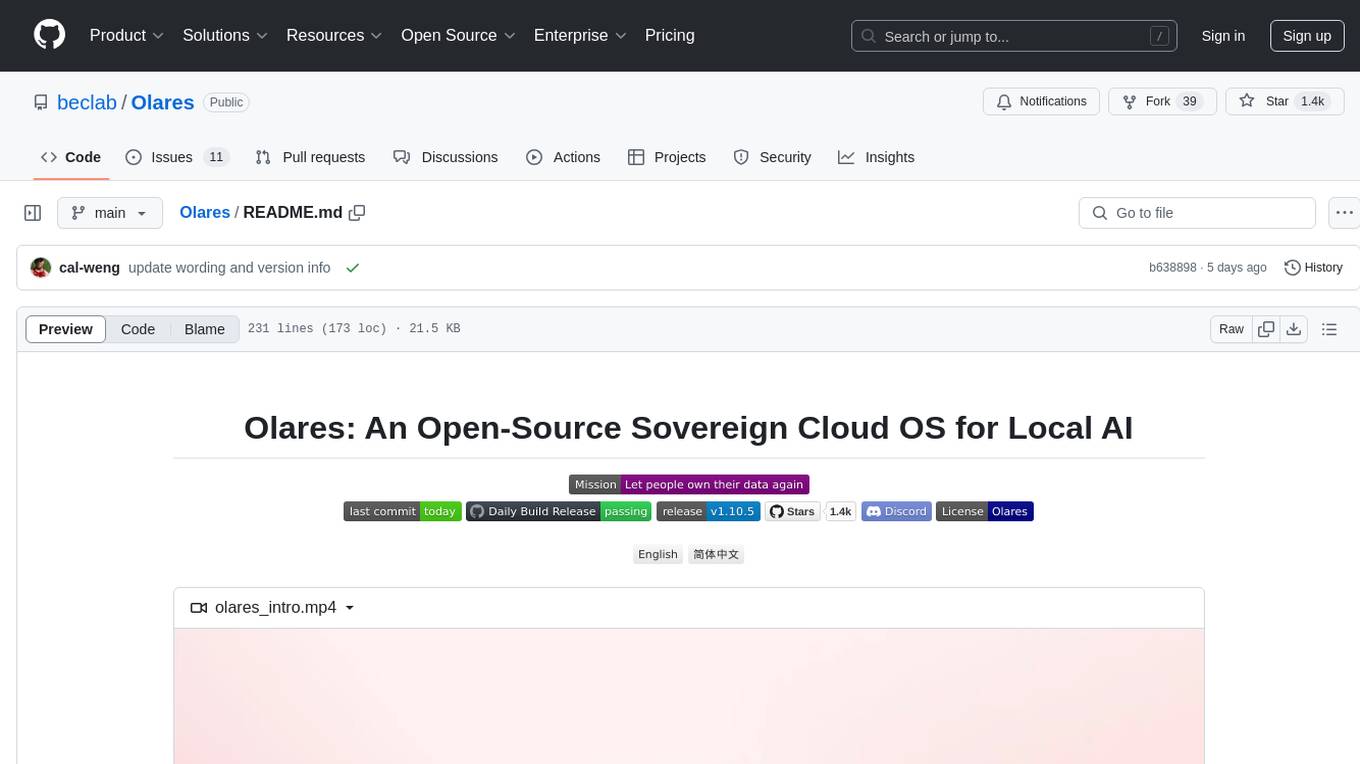
Olares
Olares is an open-source sovereign cloud OS designed for local AI, enabling users to build their own AI assistants, sync data across devices, self-host their workspace, stream media, and more within a sovereign cloud environment. Users can effortlessly run leading AI models, deploy open-source AI apps, access AI apps and models anywhere, and benefit from integrated AI for personalized interactions. Olares offers features like edge AI, personal data repository, self-hosted workspace, private media server, smart home hub, and user-owned decentralized social media. The platform provides enterprise-grade security, secure application ecosystem, unified file system and database, single sign-on, AI capabilities, built-in applications, seamless access, and development tools. Olares is compatible with Linux, Raspberry Pi, Mac, and Windows, and offers a wide range of system-level applications, third-party components and services, and additional libraries and components.

ai-enablement-stack
The AI Enablement Stack is a curated collection of venture-backed companies, tools, and technologies that enable developers to build, deploy, and manage AI applications. It provides a structured view of the AI development ecosystem across five key layers: Agent Consumer Layer, Observability and Governance Layer, Engineering Layer, Intelligence Layer, and Infrastructure Layer. Each layer focuses on specific aspects of AI development, from end-user interaction to model training and deployment. The stack aims to help developers find the right tools for building AI applications faster and more efficiently, assist engineering leaders in making informed decisions about AI infrastructure and tooling, and help organizations understand the AI development landscape to plan technology adoption.
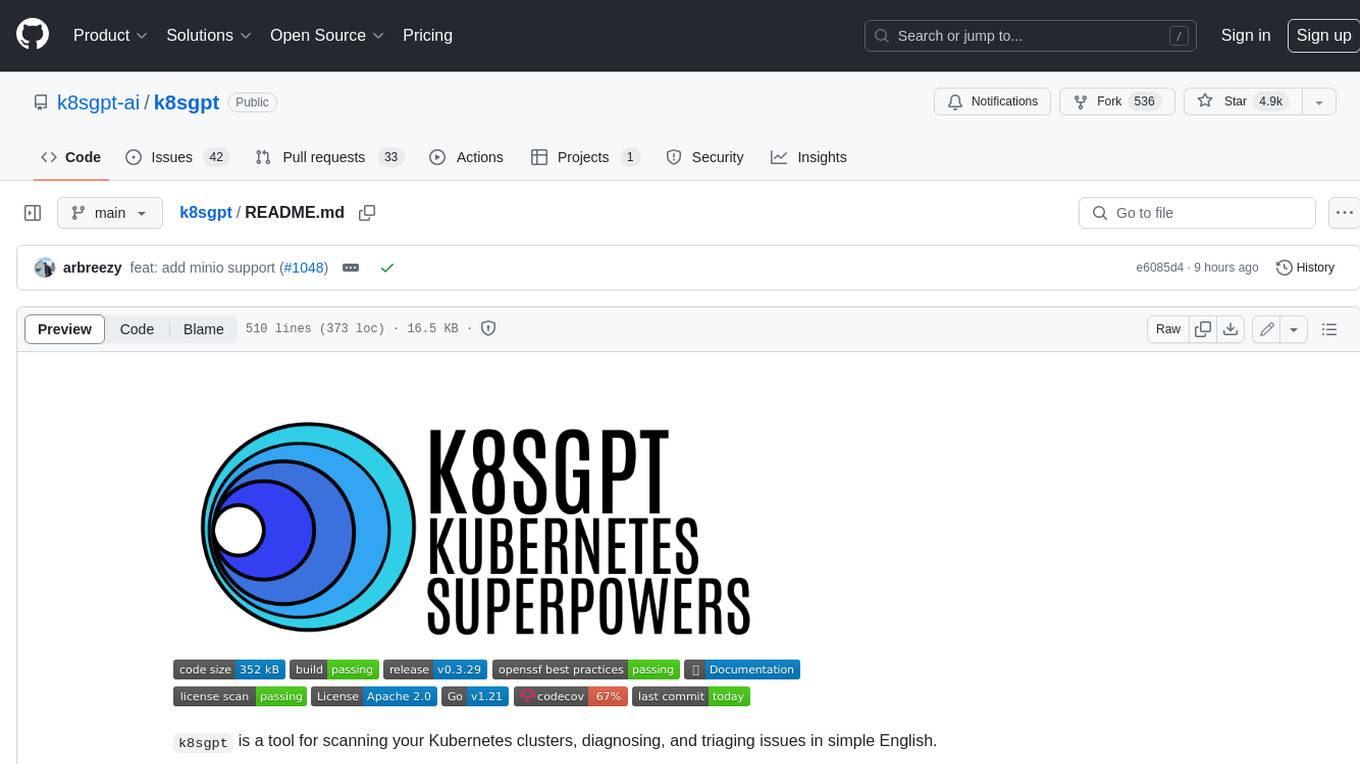
k8sgpt
K8sGPT is a tool for scanning your Kubernetes clusters, diagnosing, and triaging issues in simple English. It has SRE experience codified into its analyzers and helps to pull out the most relevant information to enrich it with AI.
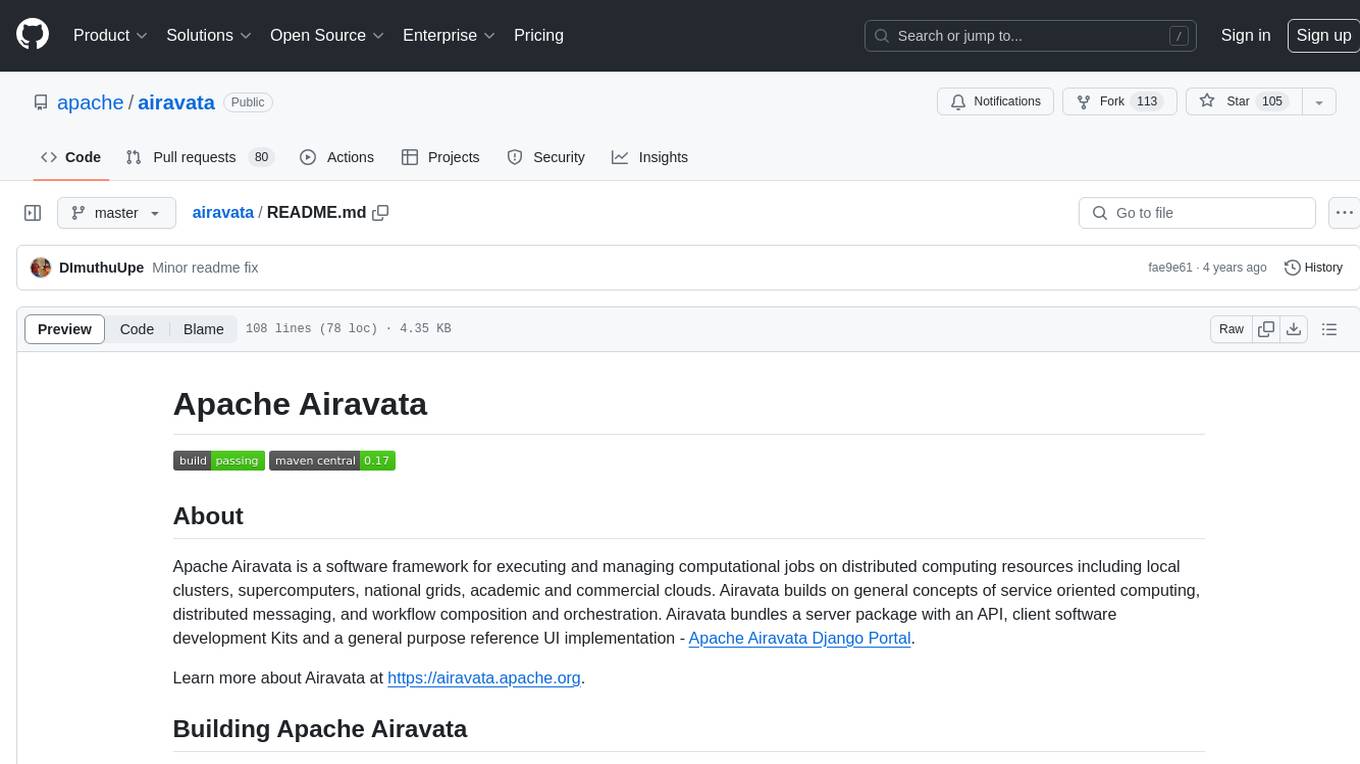
airavata
Apache Airavata is a software framework for executing and managing computational jobs on distributed computing resources. It supports local clusters, supercomputers, national grids, academic and commercial clouds. Airavata utilizes service-oriented computing, distributed messaging, and workflow composition. It includes a server package with an API, client SDKs, and a general-purpose UI implementation called Apache Airavata Django Portal.
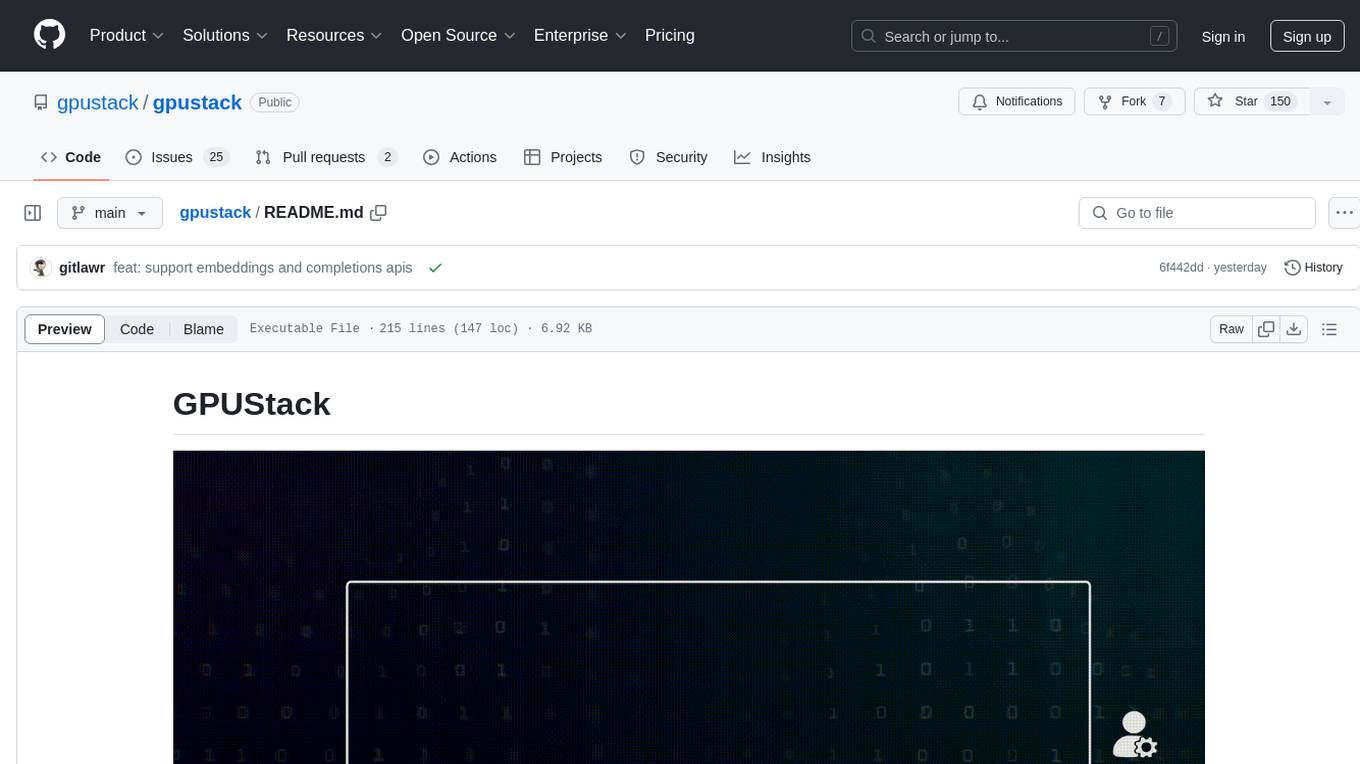
gpustack
GPUStack is an open-source GPU cluster manager designed for running large language models (LLMs). It supports a wide variety of hardware, scales with GPU inventory, offers lightweight Python package with minimal dependencies, provides OpenAI-compatible APIs, simplifies user and API key management, enables GPU metrics monitoring, and facilitates token usage and rate metrics tracking. The tool is suitable for managing GPU clusters efficiently and effectively.
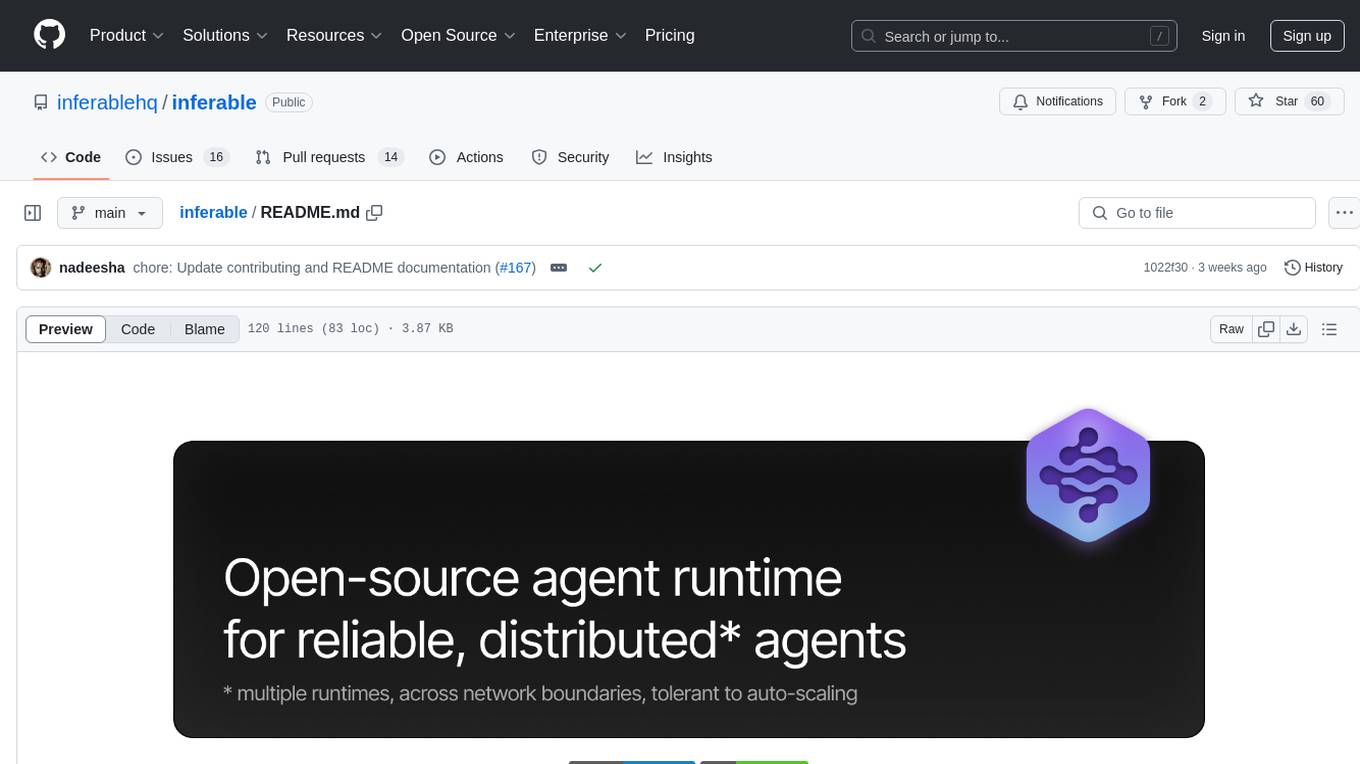
inferable
Inferable is an open source platform that helps users build reliable LLM-powered agentic automations at scale. It offers a managed agent runtime, durable tool calling, zero network configuration, multiple language support, and is fully open source under the MIT license. Users can define functions, register them with Inferable, and create runs that utilize these functions to automate tasks. The platform supports Node.js/TypeScript, Go, .NET, and React, and provides SDKs, core services, and bootstrap templates for various languages.
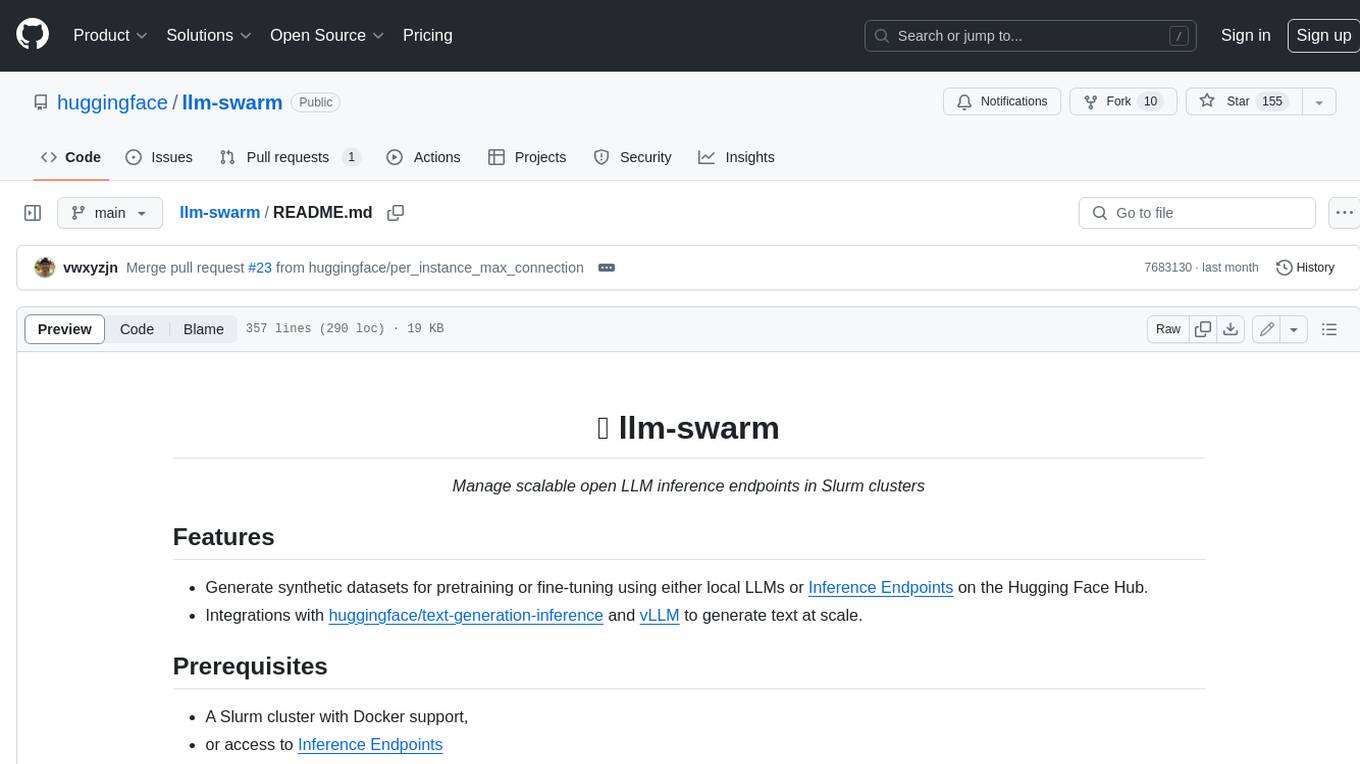
llm-swarm
llm-swarm is a tool designed to manage scalable open LLM inference endpoints in Slurm clusters. It allows users to generate synthetic datasets for pretraining or fine-tuning using local LLMs or Inference Endpoints on the Hugging Face Hub. The tool integrates with huggingface/text-generation-inference and vLLM to generate text at scale. It manages inference endpoint lifetime by automatically spinning up instances via `sbatch`, checking if they are created or connected, performing the generation job, and auto-terminating the inference endpoints to prevent idling. Additionally, it provides load balancing between multiple endpoints using a simple nginx docker for scalability. Users can create slurm files based on default configurations and inspect logs for further analysis. For users without a Slurm cluster, hosted inference endpoints are available for testing with usage limits based on registration status.
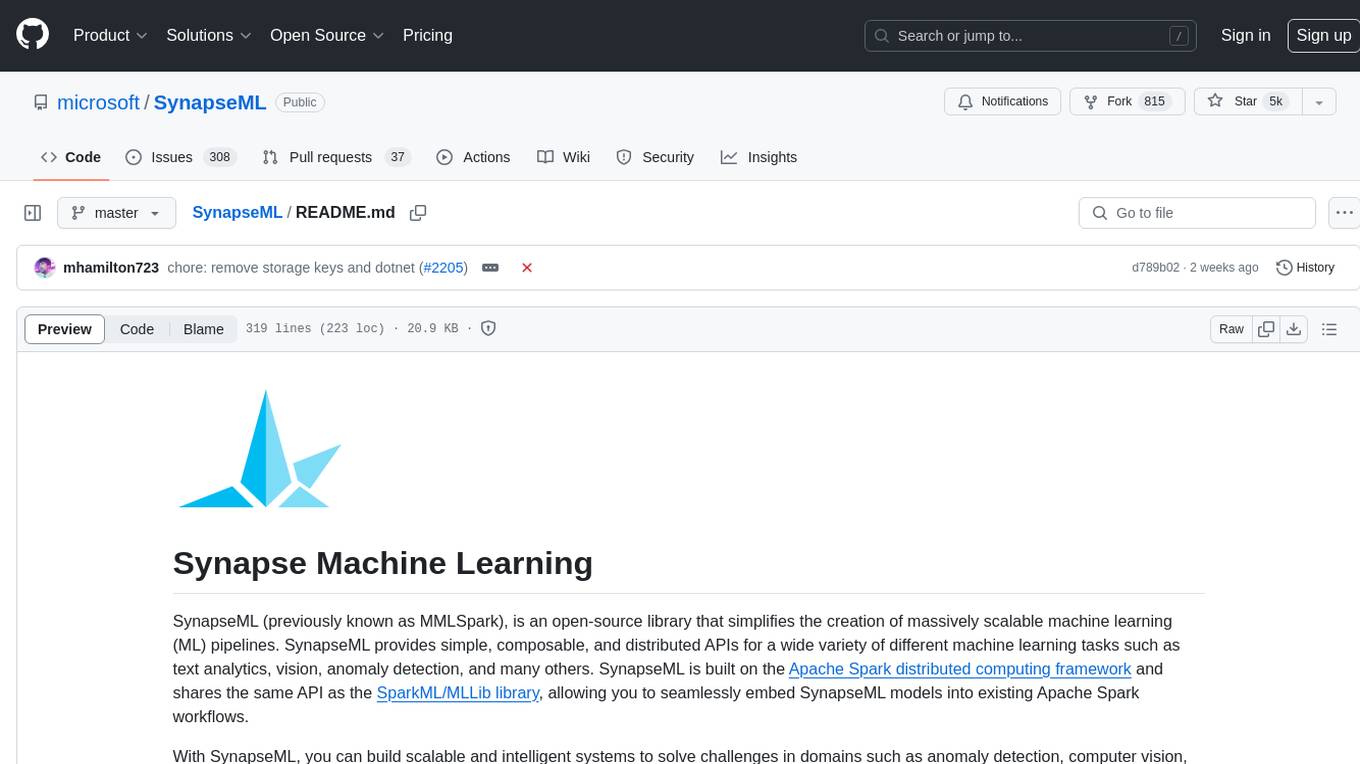
SynapseML
SynapseML (previously known as MMLSpark) is an open-source library that simplifies the creation of massively scalable machine learning (ML) pipelines. It provides simple, composable, and distributed APIs for various machine learning tasks such as text analytics, vision, anomaly detection, and more. Built on Apache Spark, SynapseML allows seamless integration of models into existing workflows. It supports training and evaluation on single-node, multi-node, and resizable clusters, enabling scalability without resource wastage. Compatible with Python, R, Scala, Java, and .NET, SynapseML abstracts over different data sources for easy experimentation. Requires Scala 2.12, Spark 3.4+, and Python 3.8+.
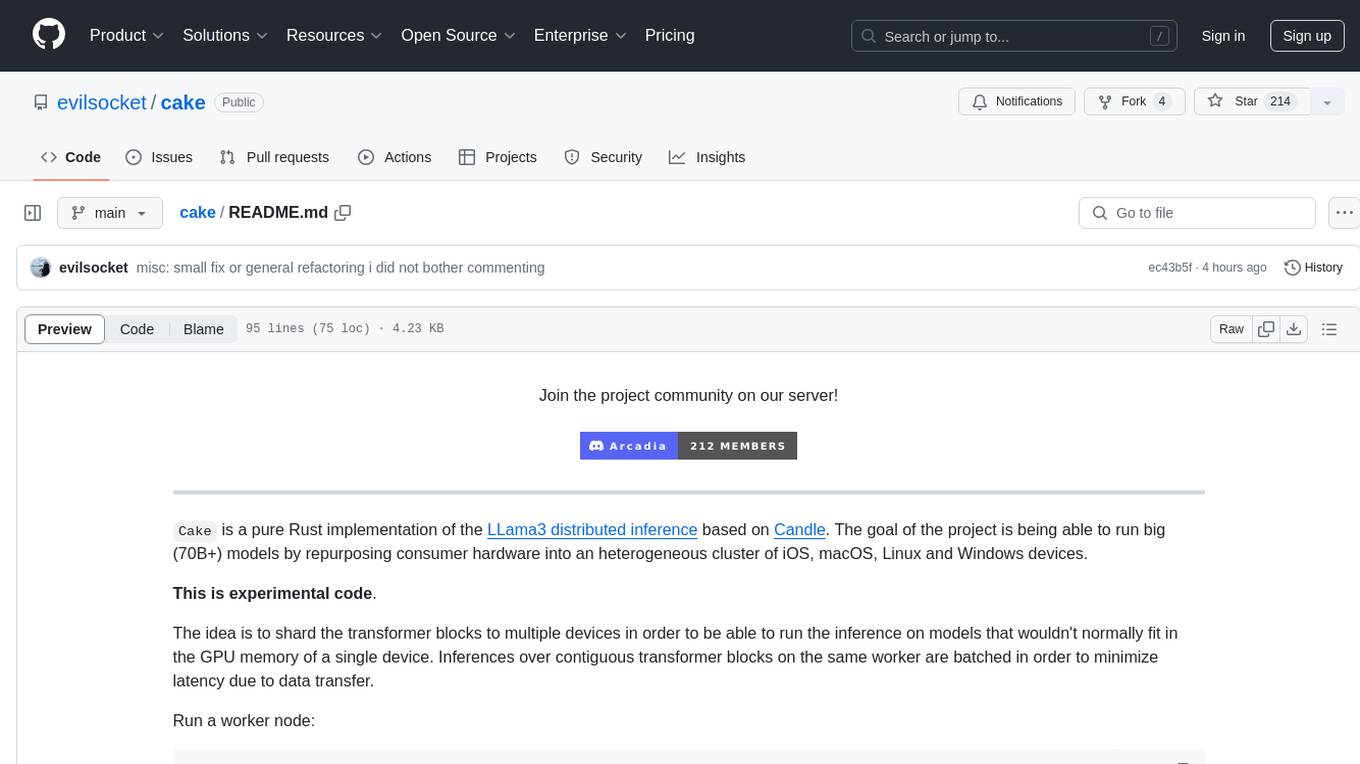
cake
cake is a pure Rust implementation of the llama3 LLM distributed inference based on Candle. The project aims to enable running large models on consumer hardware clusters of iOS, macOS, Linux, and Windows devices by sharding transformer blocks. It allows running inferences on models that wouldn't fit in a single device's GPU memory by batching contiguous transformer blocks on the same worker to minimize latency. The tool provides a way to optimize memory and disk space by splitting the model into smaller bundles for workers, ensuring they only have the necessary data. cake supports various OS, architectures, and accelerations, with different statuses for each configuration.

LLM-PowerHouse-A-Curated-Guide-for-Large-Language-Models-with-Custom-Training-and-Inferencing
LLM-PowerHouse is a comprehensive and curated guide designed to empower developers, researchers, and enthusiasts to harness the true capabilities of Large Language Models (LLMs) and build intelligent applications that push the boundaries of natural language understanding. This GitHub repository provides in-depth articles, codebase mastery, LLM PlayLab, and resources for cost analysis and network visualization. It covers various aspects of LLMs, including NLP, models, training, evaluation metrics, open LLMs, and more. The repository also includes a collection of code examples and tutorials to help users build and deploy LLM-based applications.
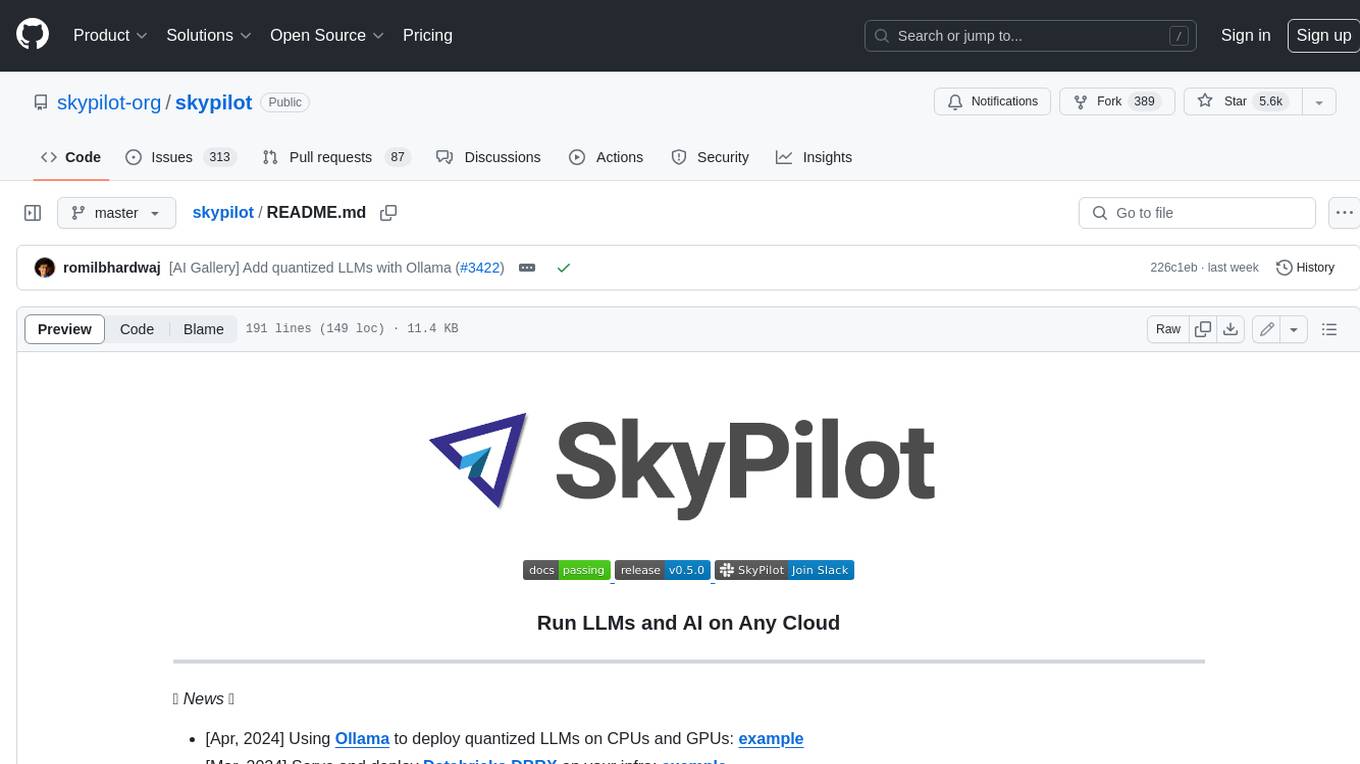
skypilot
SkyPilot is a framework for running LLMs, AI, and batch jobs on any cloud, offering maximum cost savings, highest GPU availability, and managed execution. SkyPilot abstracts away cloud infra burdens: - Launch jobs & clusters on any cloud - Easy scale-out: queue and run many jobs, automatically managed - Easy access to object stores (S3, GCS, R2) SkyPilot maximizes GPU availability for your jobs: * Provision in all zones/regions/clouds you have access to (the _Sky_), with automatic failover SkyPilot cuts your cloud costs: * Managed Spot: 3-6x cost savings using spot VMs, with auto-recovery from preemptions * Optimizer: 2x cost savings by auto-picking the cheapest VM/zone/region/cloud * Autostop: hands-free cleanup of idle clusters SkyPilot supports your existing GPU, TPU, and CPU workloads, with no code changes.
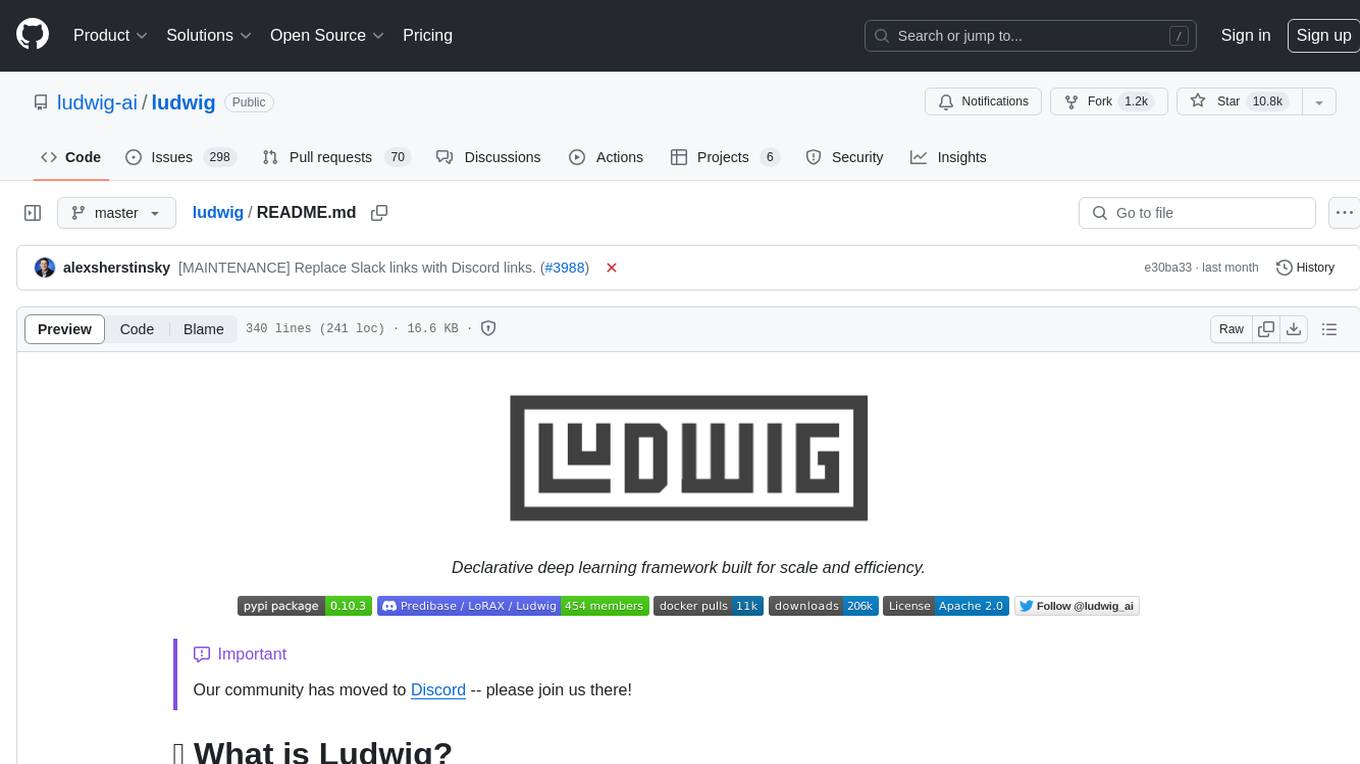
ludwig
Ludwig is a declarative deep learning framework designed for scale and efficiency. It is a low-code framework that allows users to build custom AI models like LLMs and other deep neural networks with ease. Ludwig offers features such as optimized scale and efficiency, expert level control, modularity, and extensibility. It is engineered for production with prebuilt Docker containers, support for running with Ray on Kubernetes, and the ability to export models to Torchscript and Triton. Ludwig is hosted by the Linux Foundation AI & Data.
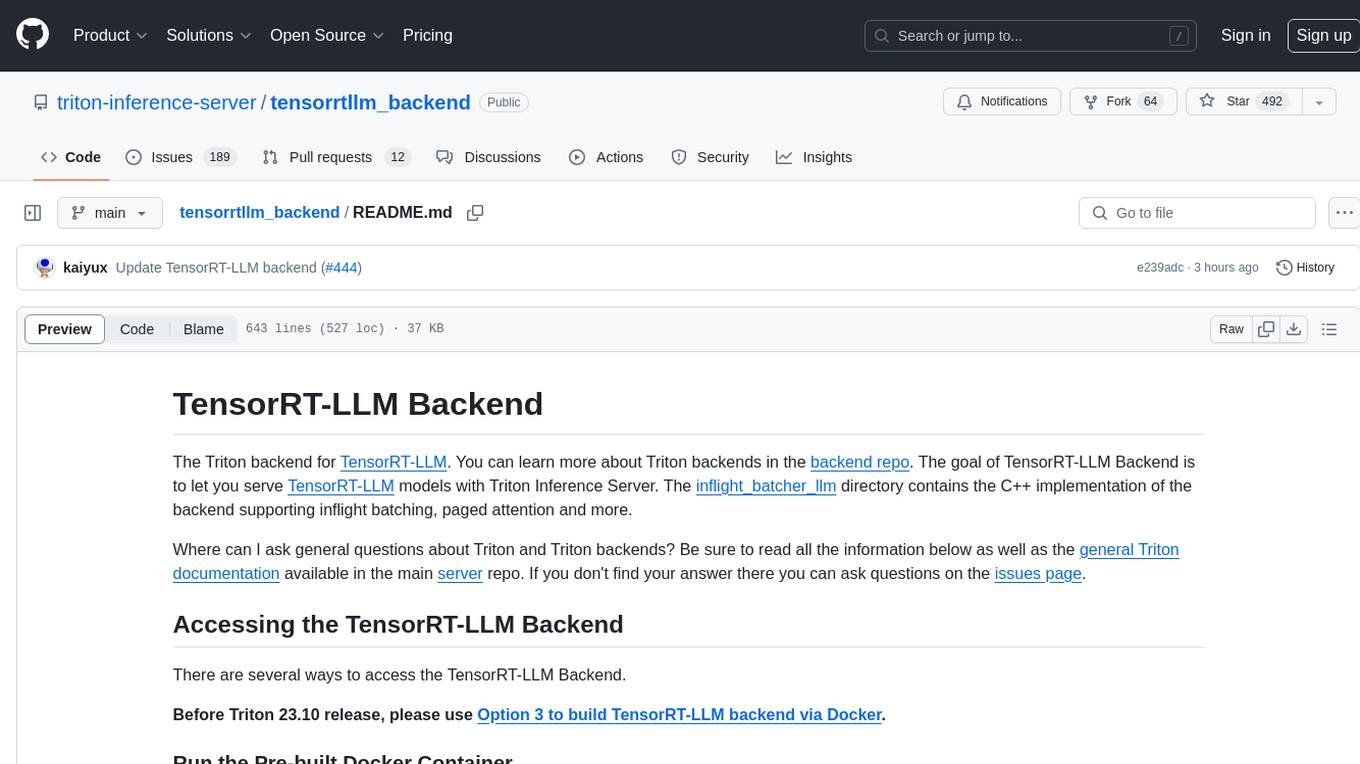
tensorrtllm_backend
The TensorRT-LLM Backend is a Triton backend designed to serve TensorRT-LLM models with Triton Inference Server. It supports features like inflight batching, paged attention, and more. Users can access the backend through pre-built Docker containers or build it using scripts provided in the repository. The backend can be used to create models for tasks like tokenizing, inferencing, de-tokenizing, ensemble modeling, and more. Users can interact with the backend using provided client scripts and query the server for metrics related to request handling, memory usage, KV cache blocks, and more. Testing for the backend can be done following the instructions in the 'ci/README.md' file.
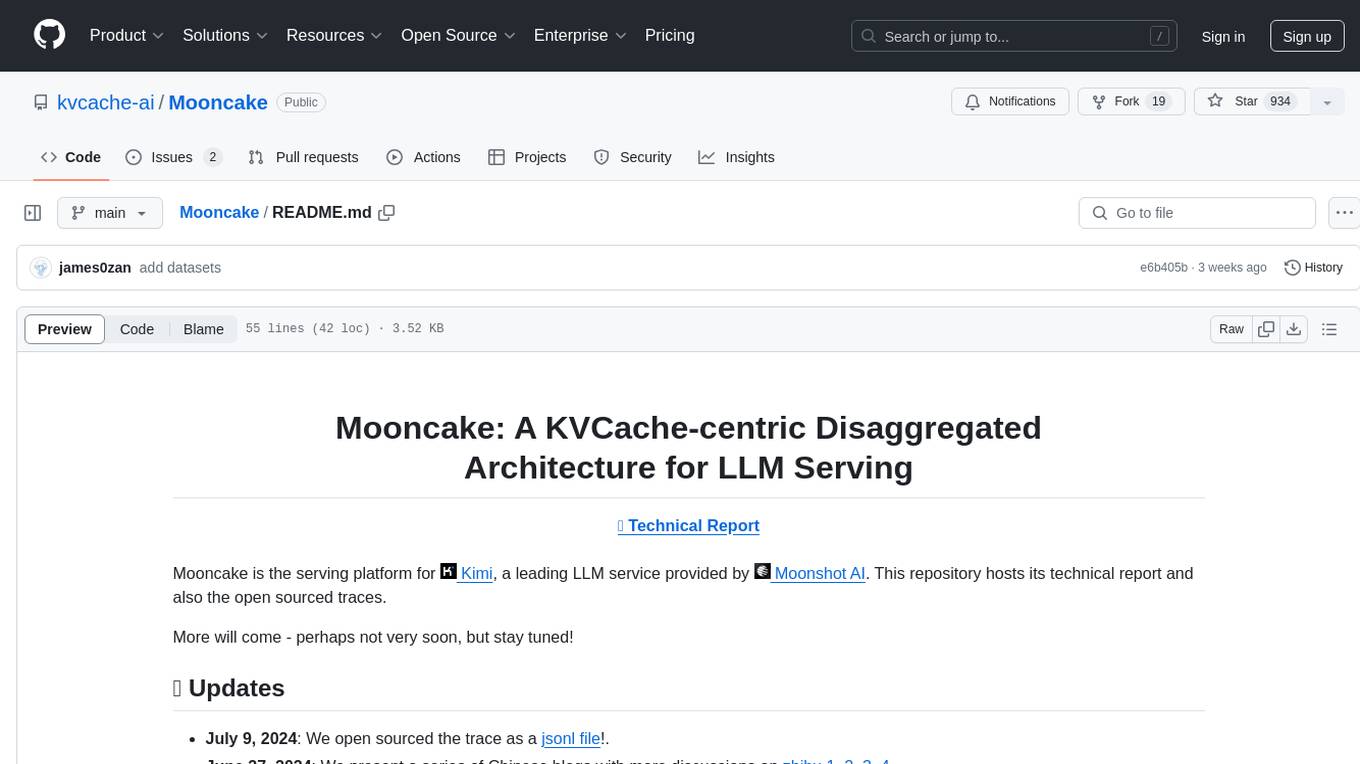
Mooncake
Mooncake is a serving platform for Kimi, a leading LLM service provided by Moonshot AI. It features a KVCache-centric disaggregated architecture that separates prefill and decoding clusters, leveraging underutilized CPU, DRAM, and SSD resources of the GPU cluster. Mooncake's scheduler balances throughput and latency-related SLOs, with a prediction-based early rejection policy for highly overloaded scenarios. It excels in long-context scenarios, achieving up to a 525% increase in throughput while handling 75% more requests under real workloads.
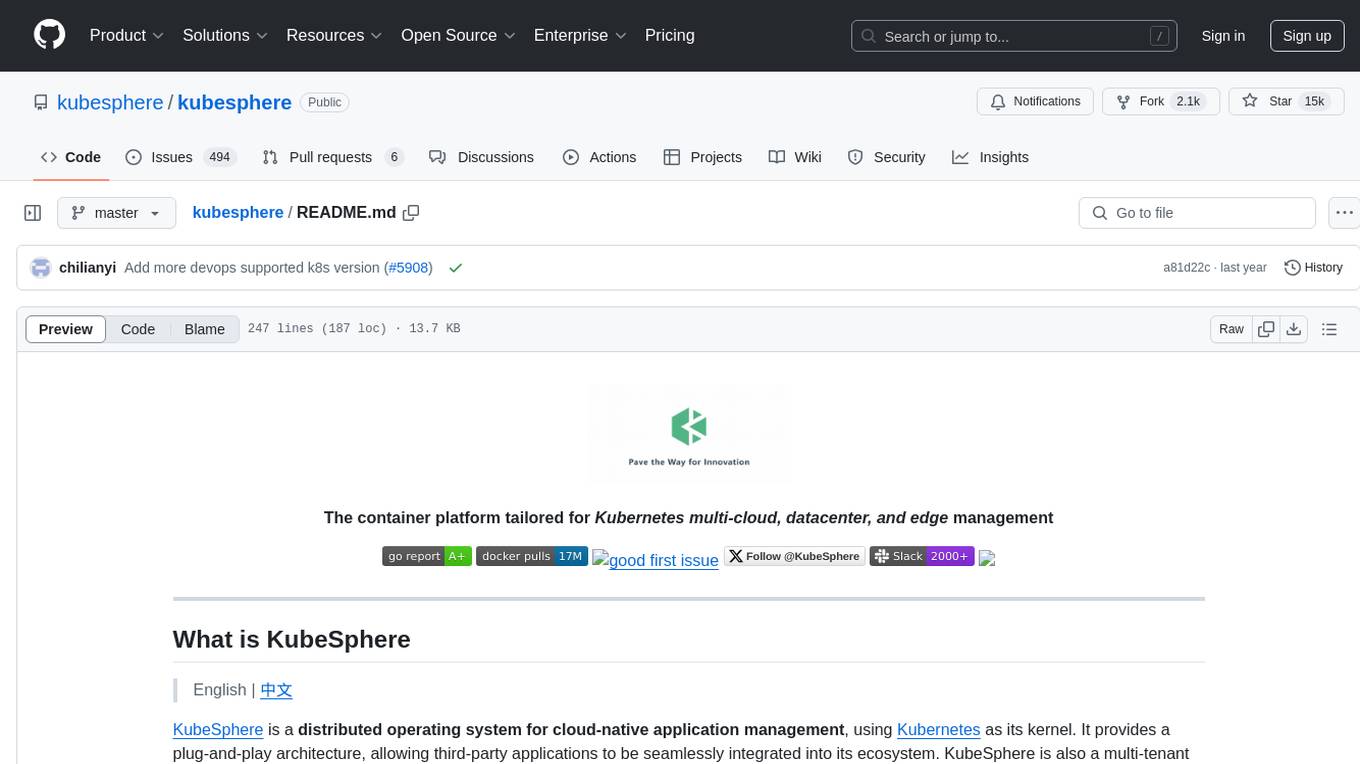
kubesphere
KubeSphere is a distributed operating system for cloud-native application management, using Kubernetes as its kernel. It provides a plug-and-play architecture, allowing third-party applications to be seamlessly integrated into its ecosystem. KubeSphere is also a multi-tenant container platform with full-stack automated IT operation and streamlined DevOps workflows. It provides developer-friendly wizard web UI, helping enterprises to build out a more robust and feature-rich platform, which includes most common functionalities needed for enterprise Kubernetes strategy.
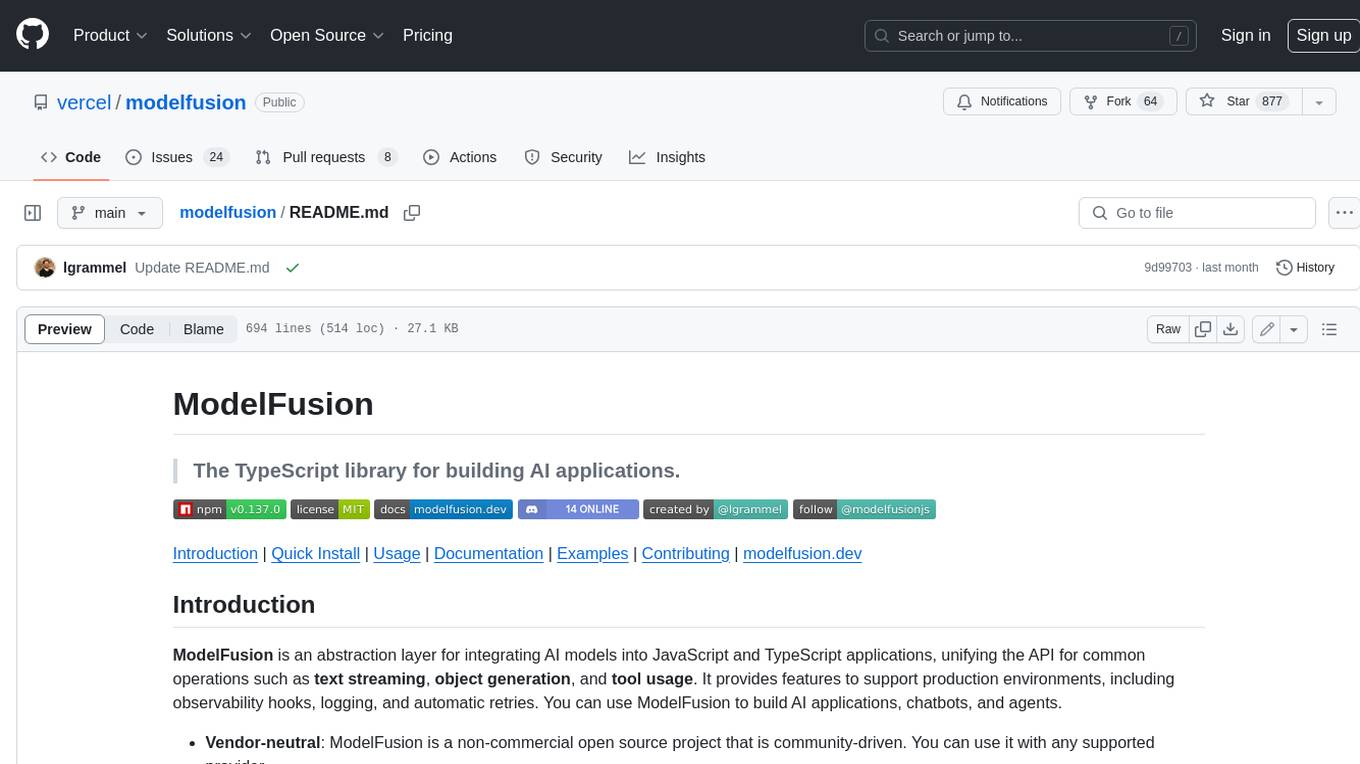
modelfusion
ModelFusion is an abstraction layer for integrating AI models into JavaScript and TypeScript applications, unifying the API for common operations such as text streaming, object generation, and tool usage. It provides features to support production environments, including observability hooks, logging, and automatic retries. You can use ModelFusion to build AI applications, chatbots, and agents. ModelFusion is a non-commercial open source project that is community-driven. You can use it with any supported provider. ModelFusion supports a wide range of models including text generation, image generation, vision, text-to-speech, speech-to-text, and embedding models. ModelFusion infers TypeScript types wherever possible and validates model responses. ModelFusion provides an observer framework and logging support. ModelFusion ensures seamless operation through automatic retries, throttling, and error handling mechanisms. ModelFusion is fully tree-shakeable, can be used in serverless environments, and only uses a minimal set of dependencies.
20 - OpenAI Gpts
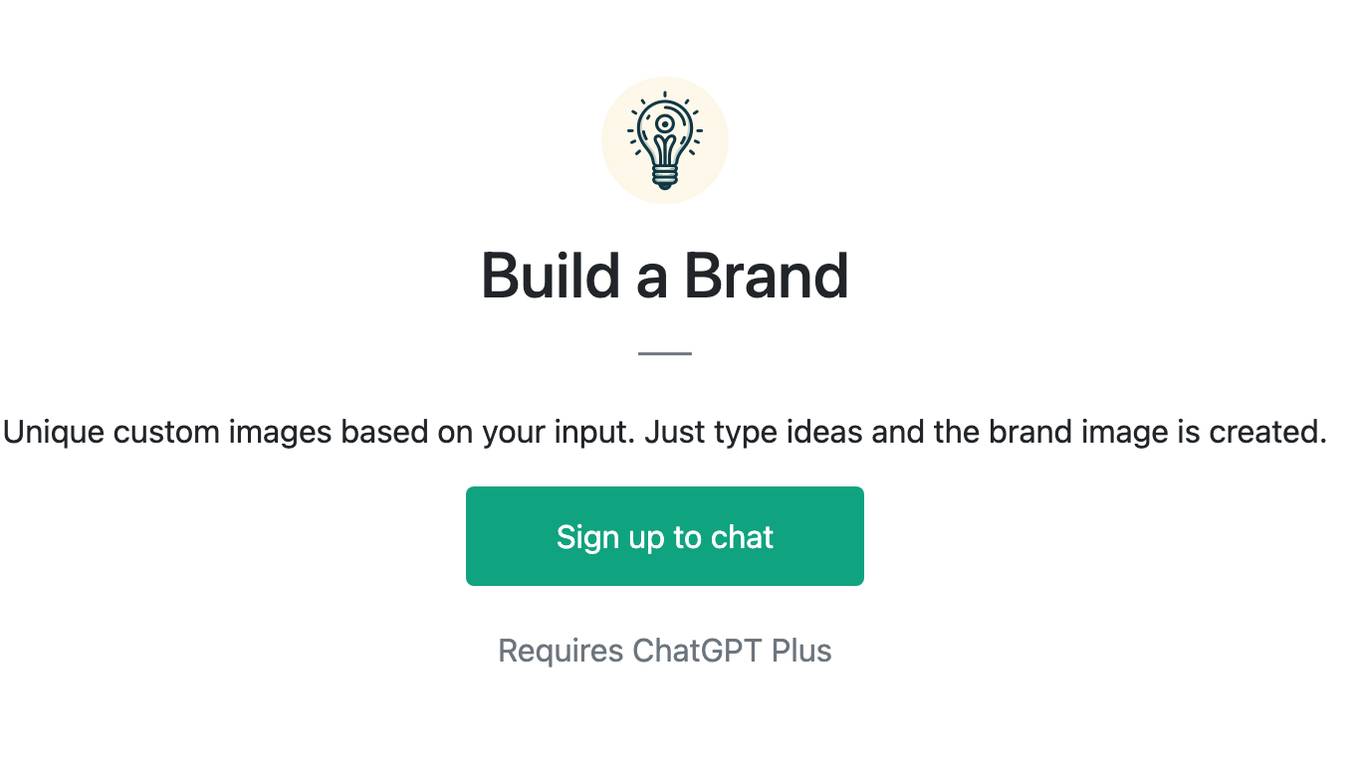
Build a Brand
Unique custom images based on your input. Just type ideas and the brand image is created.
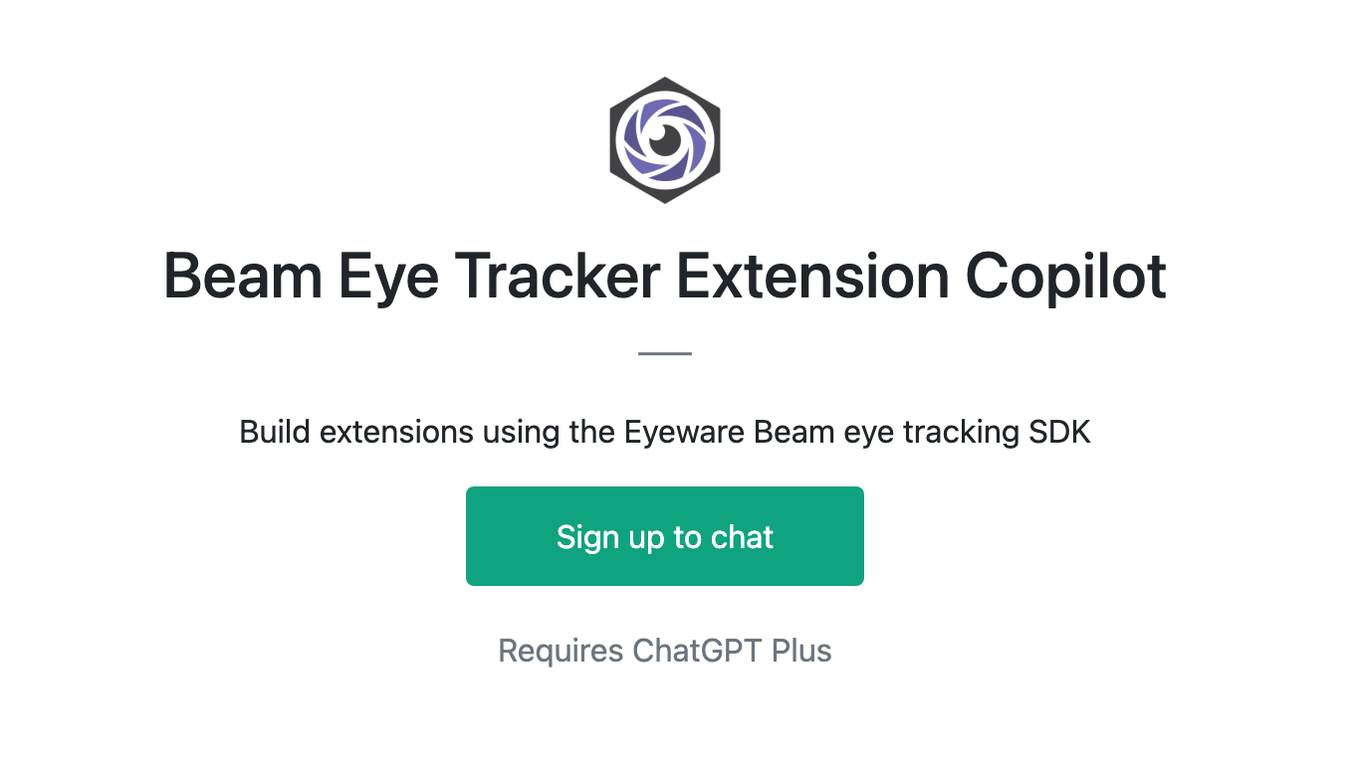
Beam Eye Tracker Extension Copilot
Build extensions using the Eyeware Beam eye tracking SDK

Business Model Canvas Strategist
Business Model Canvas Creator - Build and evaluate your business model

League Champion Builder GPT
Build your own League of Legends Style Champion with Abilities, Back Story and Splash Art
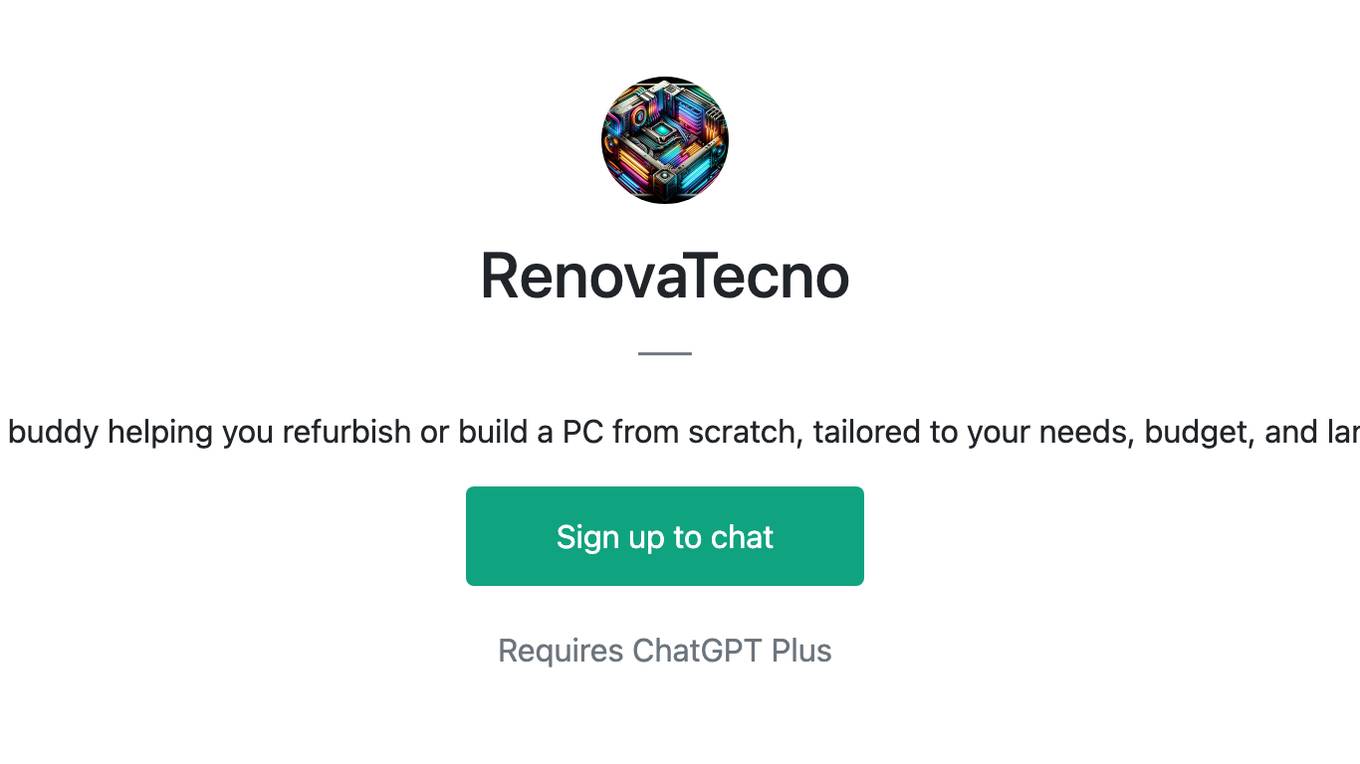
RenovaTecno
Your tech buddy helping you refurbish or build a PC from scratch, tailored to your needs, budget, and language.
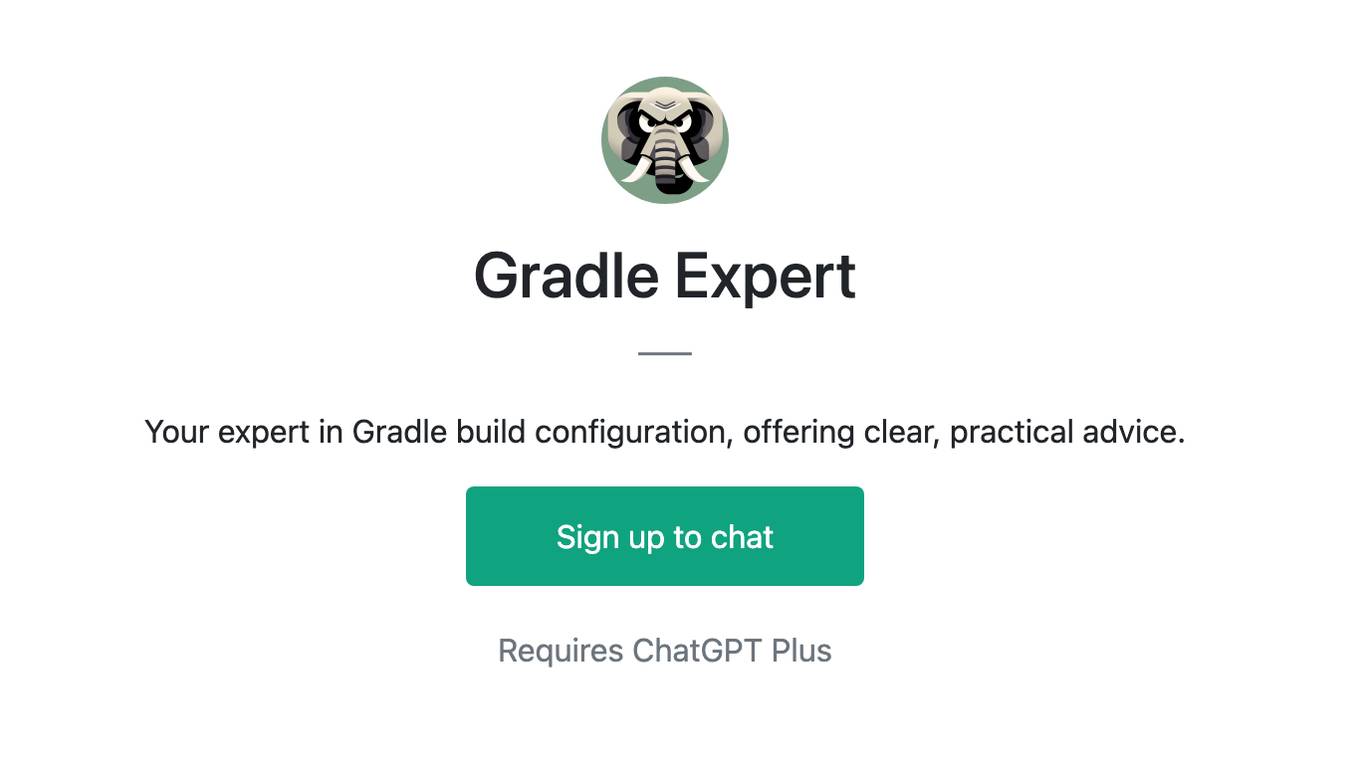
Gradle Expert
Your expert in Gradle build configuration, offering clear, practical advice.
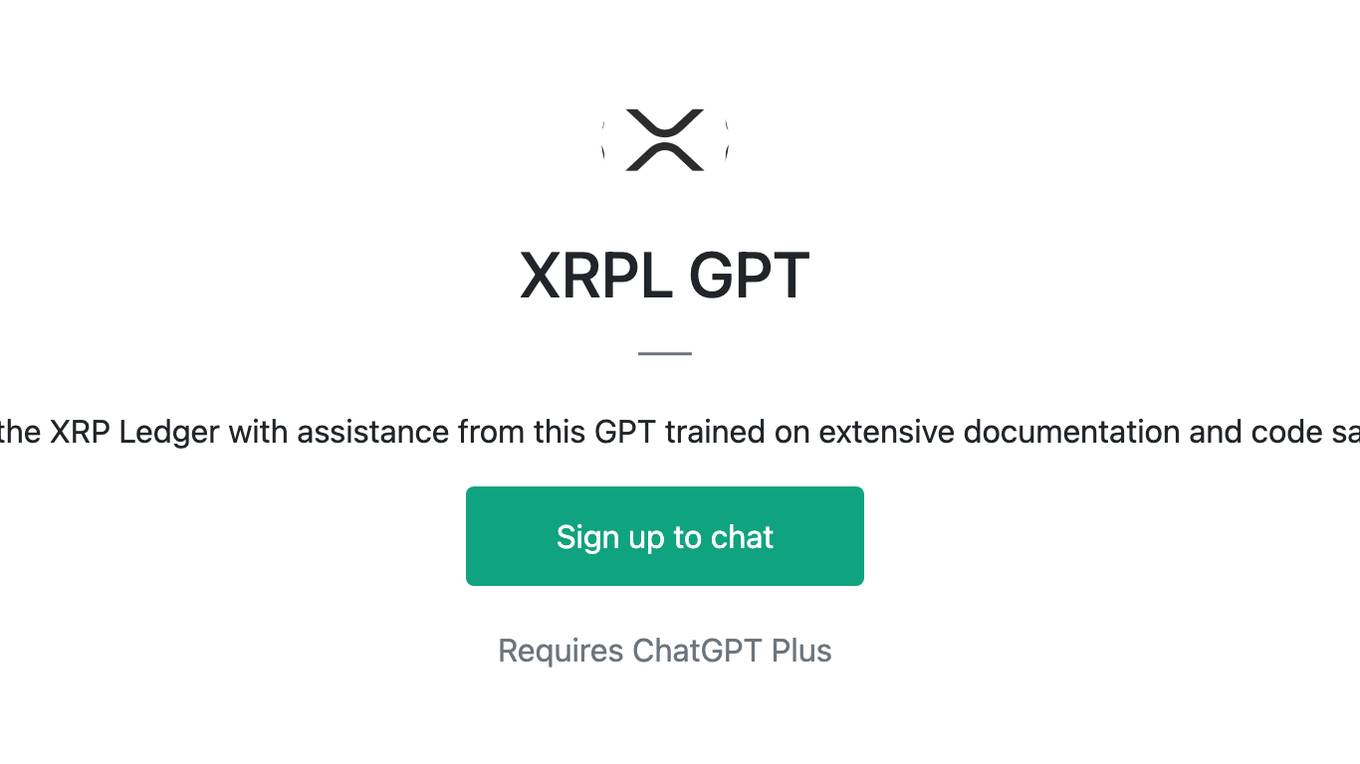
XRPL GPT
Build on the XRP Ledger with assistance from this GPT trained on extensive documentation and code samples.


